On a remote atoll in the Tuamotus lives Rainui, a young Polynesian with a story as rugged as the reef he calls home. From the unforgiving streets of Papeete to the sun-baked shores of Makemo, his tale is a raw account of struggle, resilience, and hope
How do you tell the story of a 26-year-old Polynesian who spent 6 years being homeless in the streets of Papeete, who made it to the atoll of Makemo, hoping for a different life, yet still finds himself living out of a plastic bag? How do you tell the story of a young man who insists on being kind even when the world is cruel? How do you tell the story of one random encounter blossoming into an unforeseen friendship in the unlikeliest of places?
The two weeks I spent in Makemo, one of the many rather unknown Tuamotu atolls, meant more to me than any other experience I accumulated during my thirteen months of living and working in French Polynesia. Why? Well, I got to immerse myself in the life of Rainui.
It’s a story about scars, having a heart too big for one’s own chest, and the winds of change. I’ve been unsure of how to write this piece because my mind’s been overheating with impressions and thoughts, and I’ve had to deal with my own privilege all the while. But someone once told me that if you don’t know what to write, just document. So, here goes.
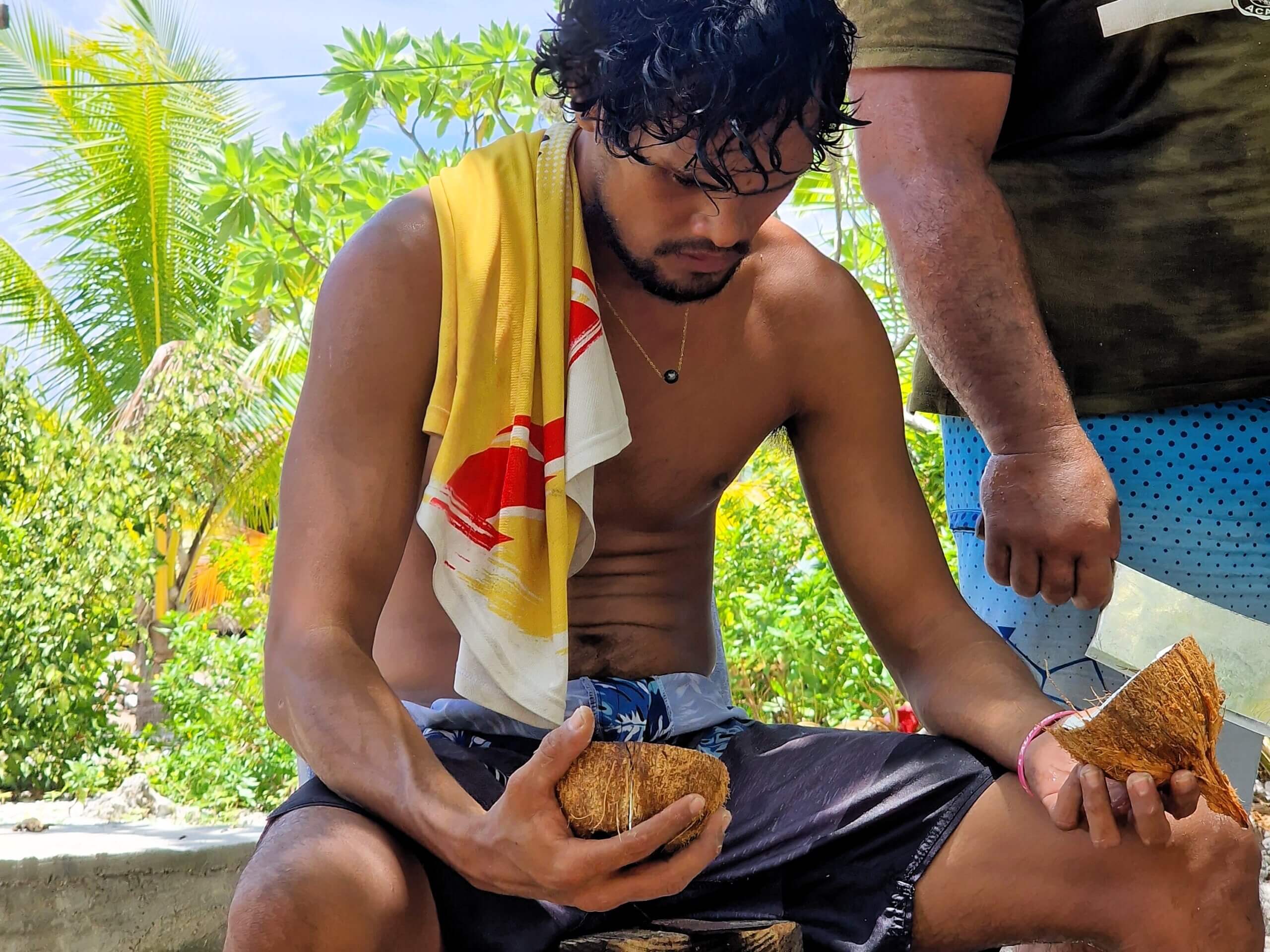
Every Cloud has a Silver Lining
“It doesn’t look good,” my skipper mutters, surfacing from the water. We’ve just hit a coral bommie, punching a grim hole in our rudder. The rudder wasn’t the only thing shattered; my dream of sailing to new horizons after a year among the same islands was in pieces, too. We were supposed to be heading to the Marquesas Islands. But this disaster? It’s about to flip into an unforgettable encounter.
Navigating the coral minefield, we limp to Makemo’s dock, where locals are fishing. It’s a cloudy Monday, but there’s nothing gray about their moods. Polynesian beats pump through speakers, and the atmosphere is as lively as the marine life torpedoing beneath our hull. They pause their shenanigans for a minute to catch our lines. “Mauruuruu!” (thanks) I shout.
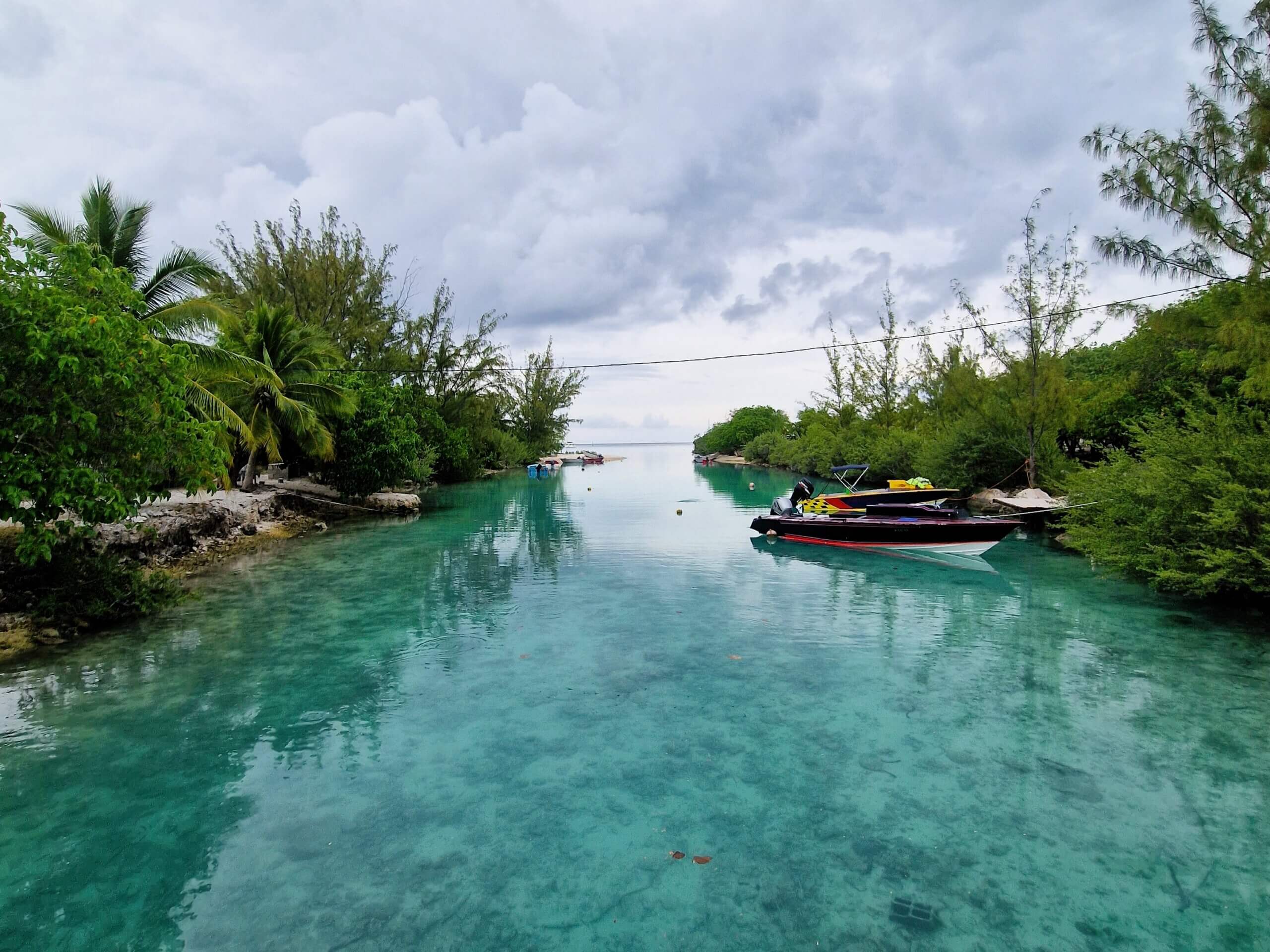
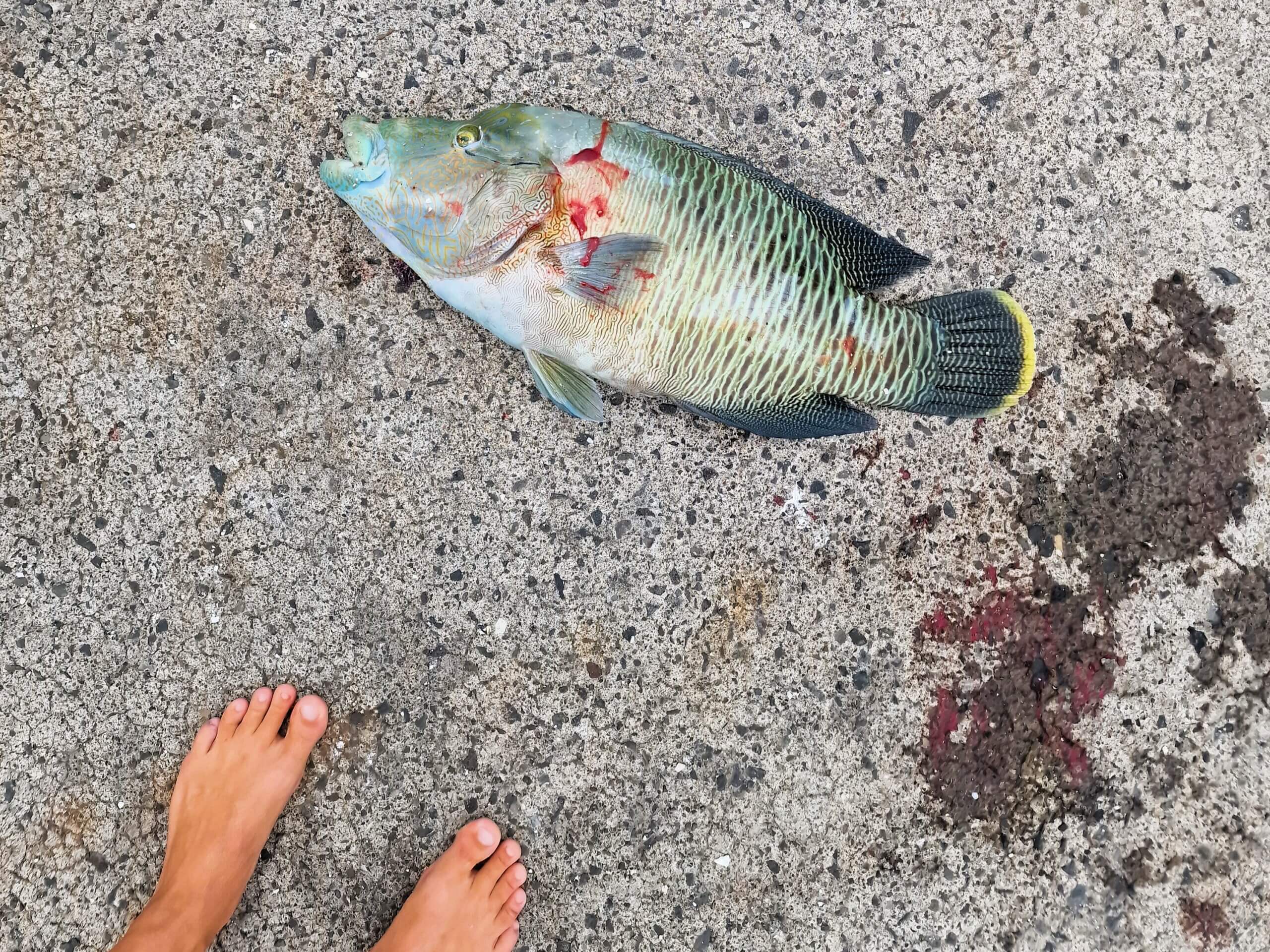
My curiosity sends my feet going as I catch a glimpse of a glistening green fish beaming from the rod, and suddenly I find myself standing next to the locals. “Can I take a photo?” I ask. The guy who caught it poses with the fish. He has a slim, cocoa-colored stature beneath a pair of faded blue shorts, wild black curls framing his face, and a lit cigarette dangling from his lips. “It’s a Napoleon,” he says. “That’s tiny,” I reply, thinking of the giants I’ve seen diving.
“What’s your name?” I ask, smiling. “I’m Rainui,” he says, pointing to the sky. “It means big cloud.”
The Stories Our Scars Hold
Dusk is falling upon Makemo. A handful of spear fishers are trying to secure themselves dinner, two small fishing boats come speeding by, and there on the dock stands Rainui, gazing out at sea. He’s had a change of clothes, now sporting a black t-shirt and likewise dark-colored swimming trunks, and in stark contrast to his black nest of hair, he’s nestled two white Tiare flowers, the national flower, one behind each ear.
“Are you from here?” I ask Rainui, as we’re now sitting, feet dangling over the edge of the dock. “I’m from Tahiti,” he replies, the sweat on his skin glistening in the golden hue that’s speedingly spreading across the sky. “Been here three years now,” he adds, his voice carrying the weight of experience. Rainui shares how he landed in Makemo, chasing a job that’s slipped through his fingers.
Before coming here? He lived in the streets of Papeete. “Found out I was adopted at 18,” he reveals, a sense of resignation shadowing his words. “The folks who took me in? They just did it for the money.” Now, I’ve spent a fair bit of time in Papeete and let me tell you this, being homeless in Papeete? That’s no joke. Unlike the tight-knit embrace of community here in Makemo, where a helping hand is never far away, Papeete is a brutal affair. There, you’re on your own, kid.
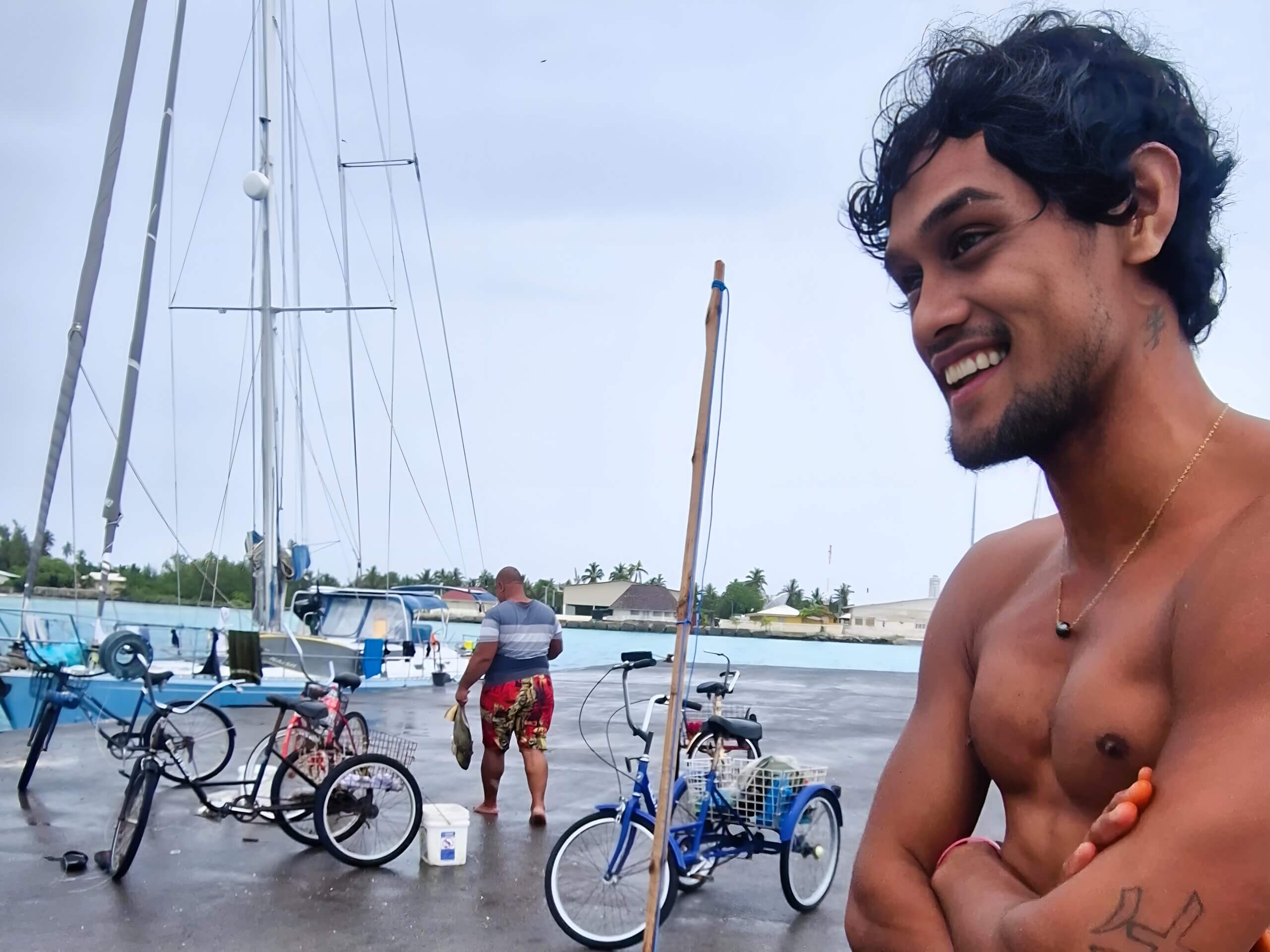
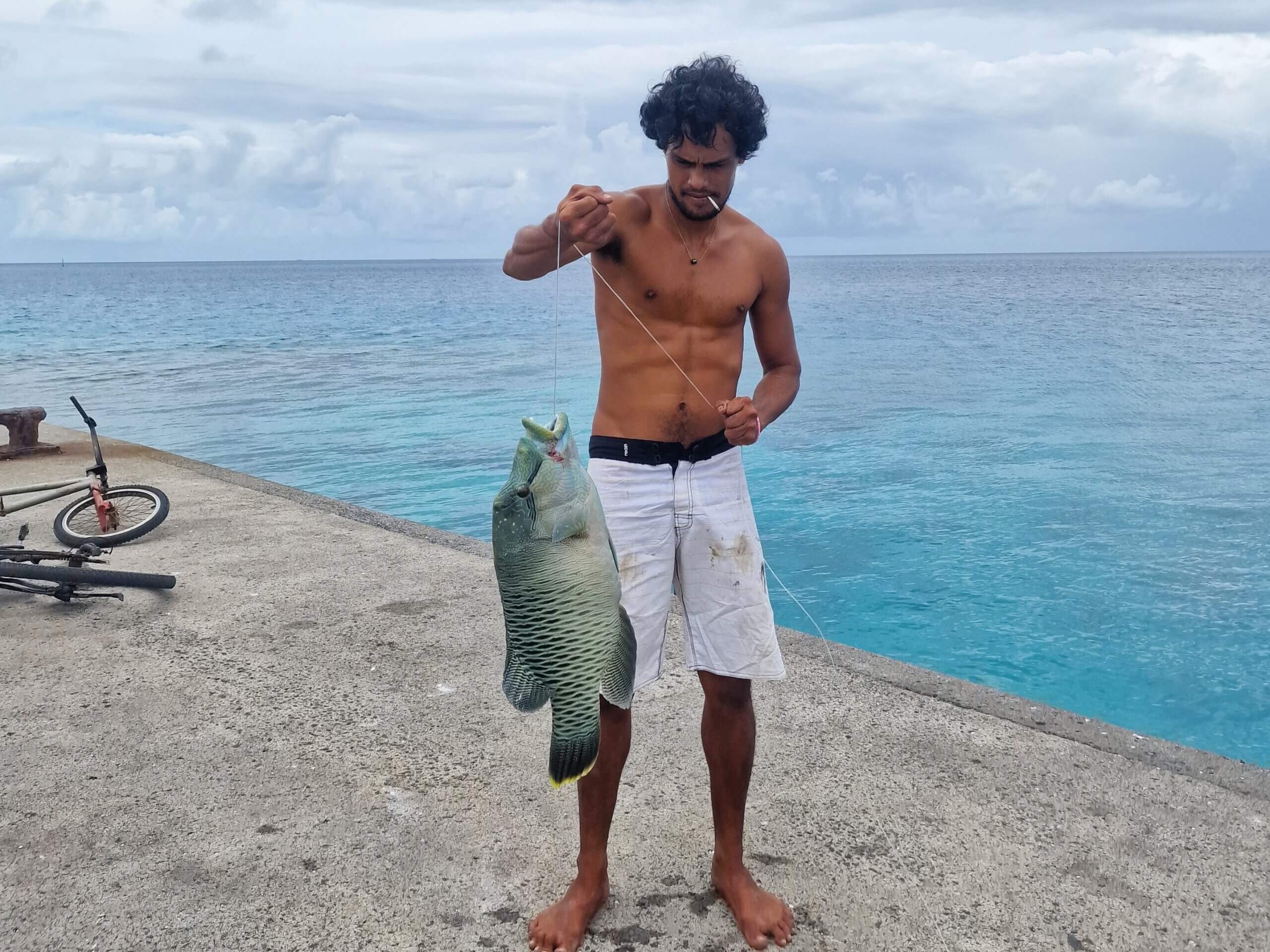
A crab is darting towards me, and Rainui snatches it up. “I don’t like this feeling!” he shrieks as the creature’s lanky legs does spasmic movements in his grip. He sets it free, and the crab finds refuge, perched somewhere beneath us, eavesdropping on our conversation. I’ve taken notice of the perhaps plus thirty scars that’s etched into Rainui’s skin, a landscape of pain from elbow to wrist. Some large, some small, some deep, some shallow, but each one a testament of dark times.
I know many would steer away from talking about it, deeming it too personal or too sensitive. I think differently. Nothing transformed me more than when I opened up about the demons that resides within me. Call it hippie-dippy, but I believe it to be my personal calling to help others open up about their darkness and leave them a little lighter. Imagine if no one has ever asked Rainui what made him drive a razor blade into his own flesh?
I point to the lower half of his arm, “Mind if I ask about those?” Rainui traces his fingertips over the inconsistencies of the skin. “Did that back when I was on the streets,” he replies. He’s not shy about them, nor particularly proud, it seems. I search for his eyes, “I’m sorry you had to go through that,” I say as I lock in on them. I tell him that sometimes there’s so much hurt inside of us that we have to find an outlet for it, and sometimes that means shifting the pain from inside our heads to physically manifest somewhere in our body. I tell him I know darkness too. Show me yours, and I’ll show you mine.
Later, when we stand to say our goodbyes, I give Rainui a hug. It startles him. He’s probably never had a white woman embrace him before. But for me, it’s a gesture of gratitude. Thank you for your openness, your trust, and your honesty. I wish you healing from all that’s transpired. You’re a courageous, remarkable soul.
The Quest for Solace
From that first night on the dock, it seemed like it was written in the clouds that Rainui and I would form an improbable bond, a union forged in empathy and the quest for solace. During the next two weeks, we hang out at any possible moment. I’m eager to learn and understand more about the life of Rainui. After all, what’s the point of traversing the globe if not to wholeheartedly engage with the lives that intersect our own?
One day, as I’m biking down the street, I bump into a tearful Rainui. “What happened?” I ask, placing a hand on his shoulder. But maybe that was a silly question. Because at this point, I already know that despite Rainui’s cheerful demeanor, which seems to emit light sometimes, he’s still struggling with his situation and his self-worth. “Do you want to see where I live?” Rainui offers instead, and I nod, feeling grateful for the trust he shows in me.
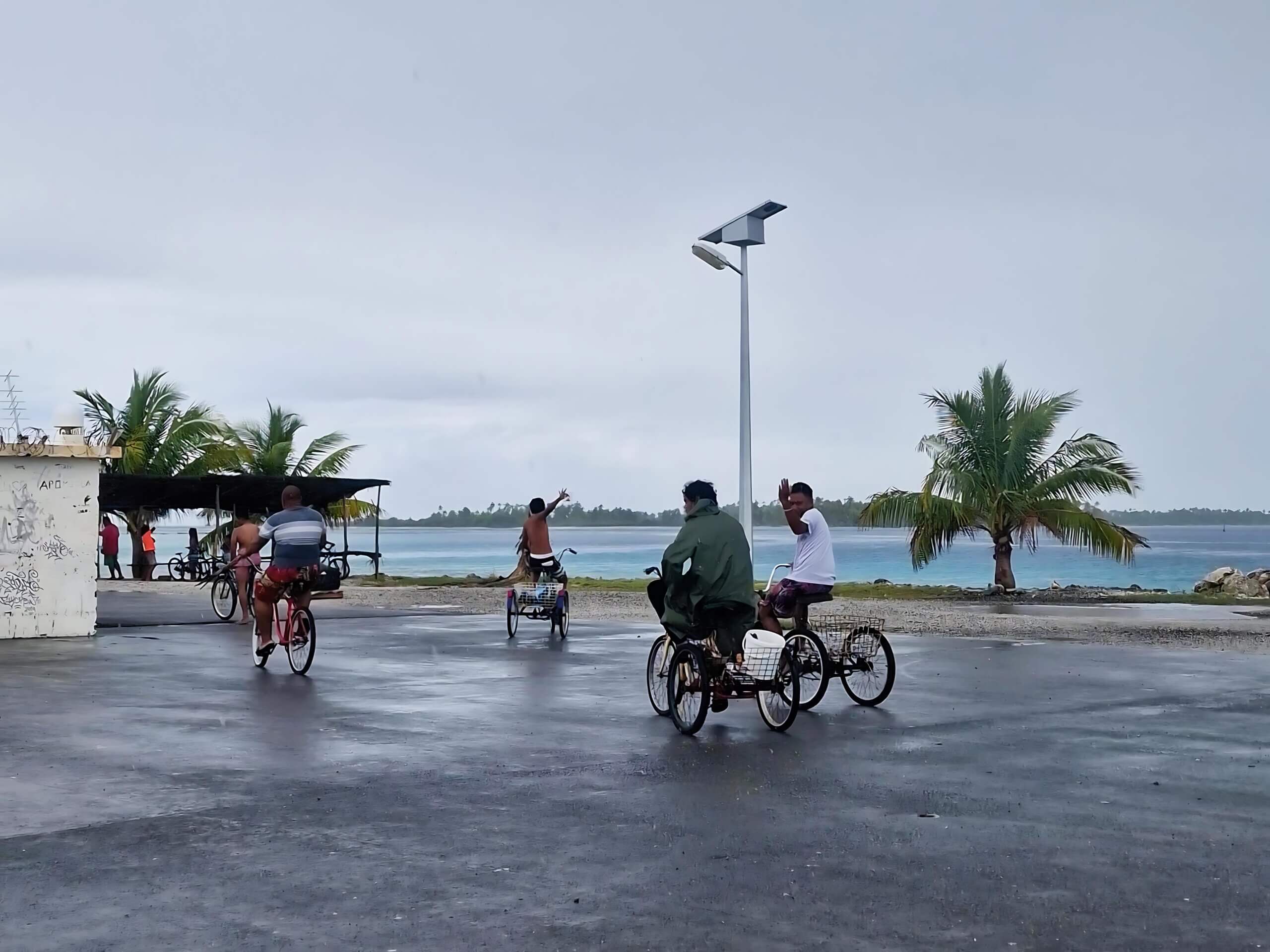
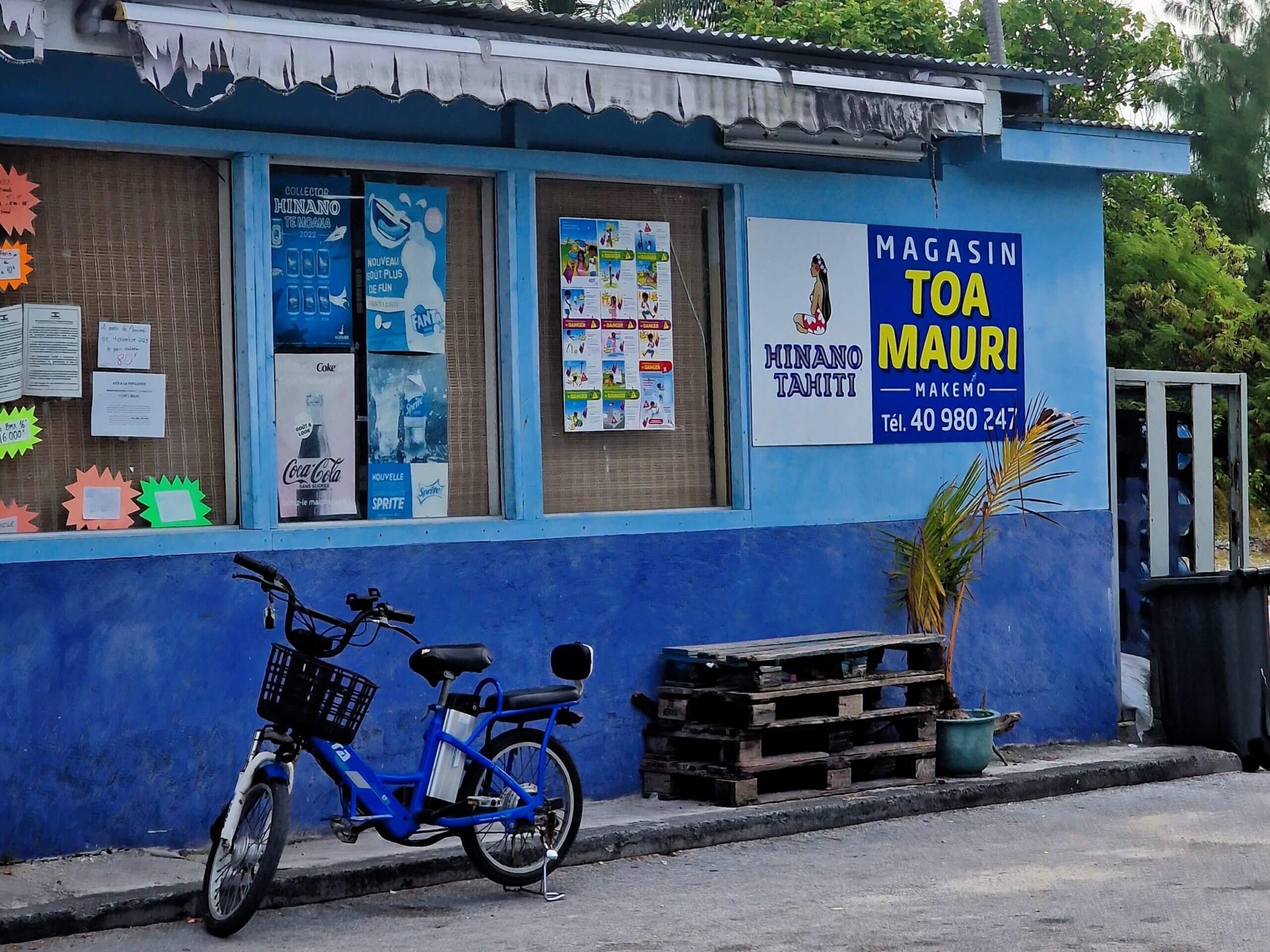
As we bike down the street, a smile has returned to Rainui’s lips. Palm trees sway on either side of us, and I take a big gulp of the Pacific breeze, preparing myself for what I’m about to witness. Rainui leads me into the palms, sand crunching beneath our bare feet. There it is: a weathered, crooked cabin made from some planks that have been hammered together. No door, no bathroom, no kitchen. Simply a worn out mattress and the one plastic bag that holds all of Rainui’s belongings.
The cabin belongs to a local who goes by the name Uncle Dave. He’s not really Rainui’s uncle, but he’s a good bloke who’s helping him out. “Sometimes I take the mattress outside and sleep here,” Rainui says, pointing to a spot next to the cabin. “That’s nice,” I manage, my words tangled in the knot forming in my stomach. I know this is an improvement from the streets of Papeete. I know Rainui is in a better place now. Yet, guilt and sadness crash over me like the roaring waves of the Pacific. The world’s unfairness is a tough pill to swallow, and I still haven’t figured out how to support someone without absorbing their pain myself.
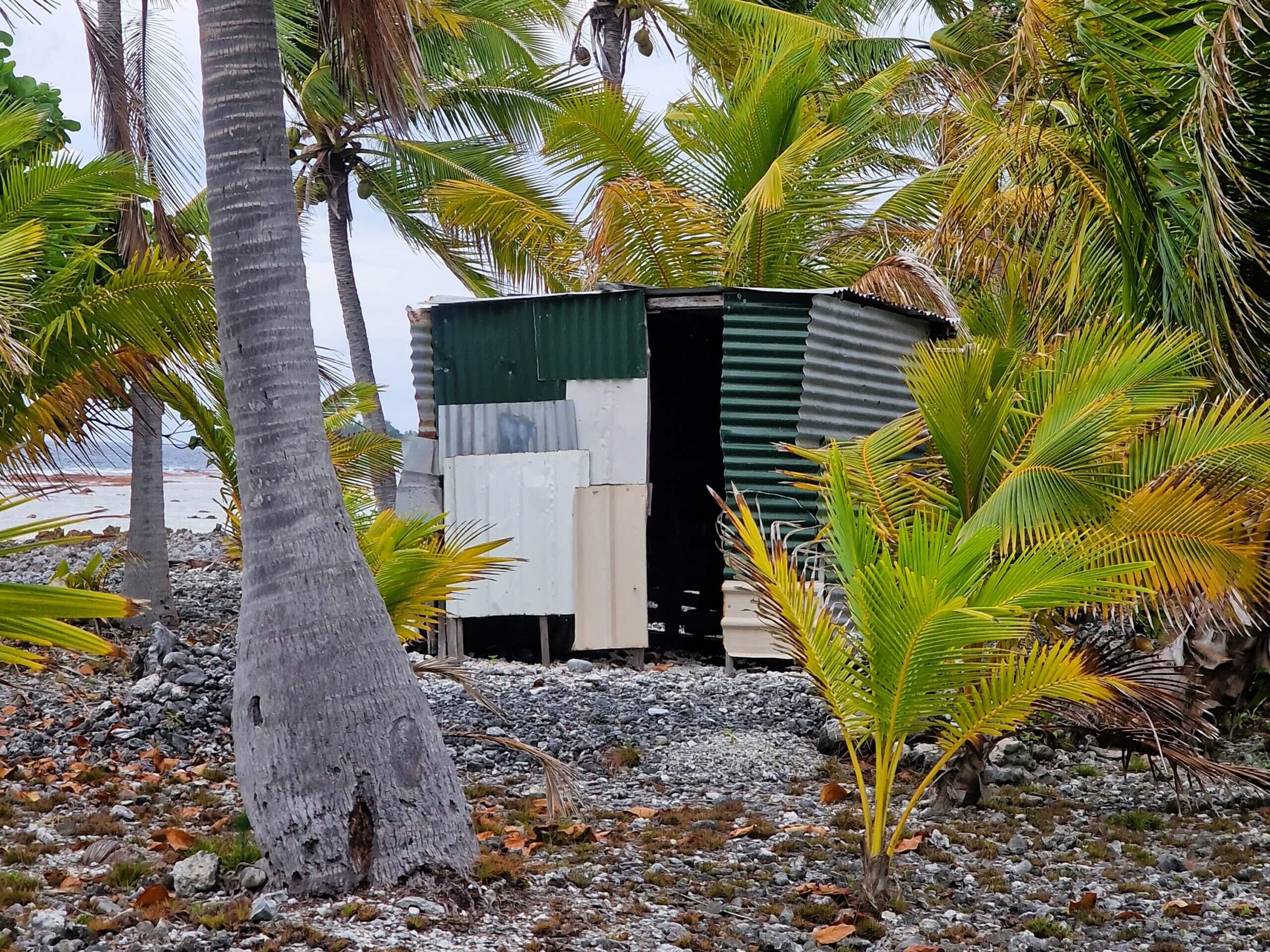
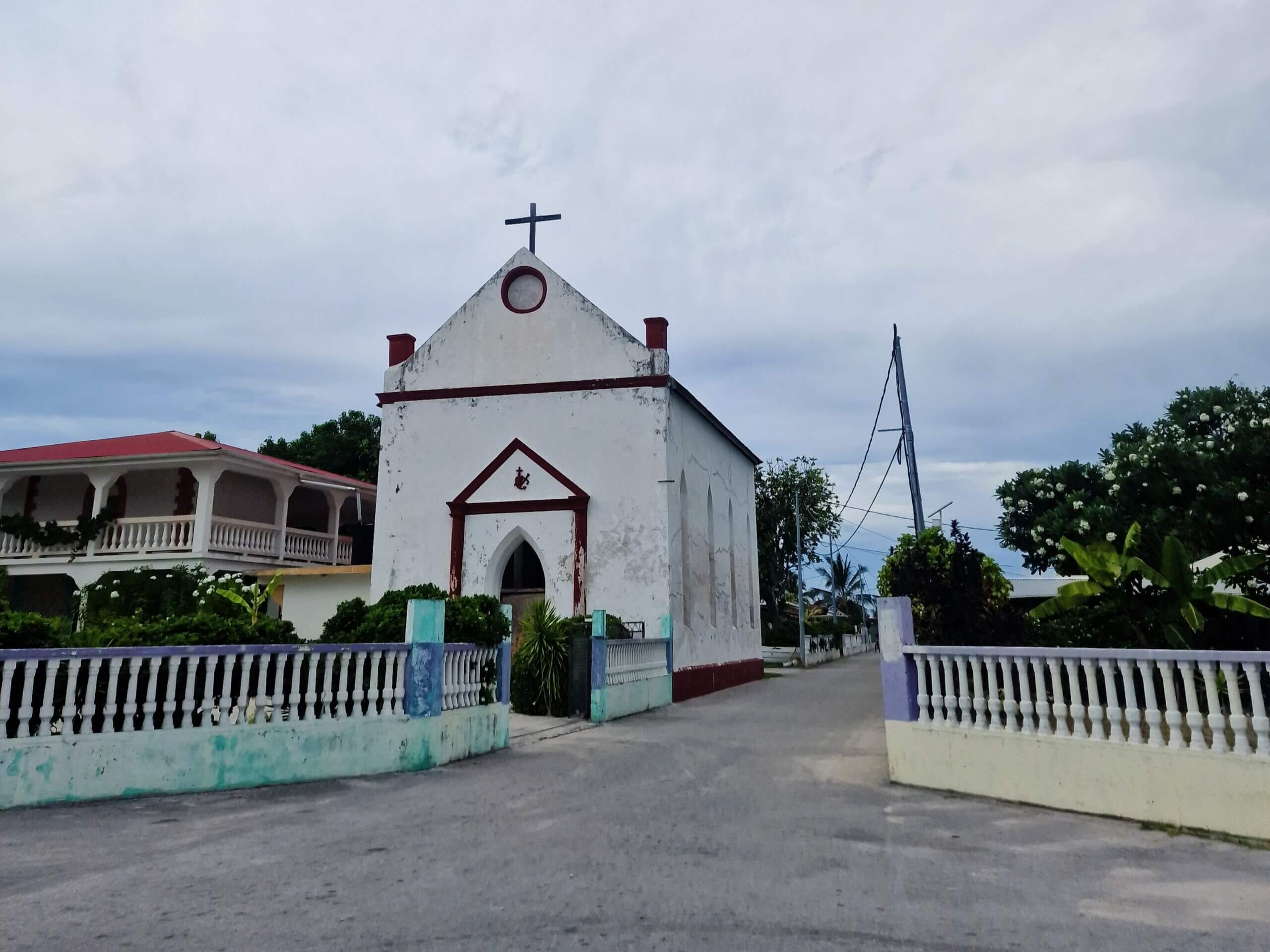
That night we spend at Uncle Dave’s, along with his lovely wife and two of Rainui’s good friends, David and Tapu, whom I’ve been lucky enough to get to know as well. Uncle Dave is like a bald Maui from Moana, a local legend who holds the record for splitting 50 coconuts in the shortest time. Despite his limited English, we share plenty of laughs. In their humble home, I count four dogs, nine cats, and a baby chicken named PewPew. “Will you eat PewPew when he gets bigger?” I ask, astonished at how all these animals live together in harmony. “No!” Dave and his wife exclaim. “When PewPew dies, we have a funeral,” she adds. It strikes me that in Polynesia, chickens are revered much like cows in India.
Then, dinner is served: pig hearts and rice. The kindness of Polynesians never cease to amaze me. We hadn’t even announced the arrival of the four of us, yet here we are being fed and entertained, and there’s even cake for dessert. It makes me happy, knowing that there are good people on this atoll looking out for Rainui. Despite the loneliness that I know haunts him some days, I hope he realizes that there are folks who genuinely care about him.
The boys walk me to the boat, and now, there’s no hesitation about hugging. Rainui hugs me, David hugs me, and Tapu hugs me. “See you tomorrow, Sara!” they call out as they disappear into the night. I can’t help but marvel at how this friendship is unfolding. It’s raw, real, and beautiful—the kind of connection that only happens when we dare to bare the full palette of our being to someone else.
A Full Belly, A Hungry Dream
“I haven’t been to a party in the three years I’ve lived here,” Rainui responds when I invite him to one that evening on the dock and tell him to bring the local posse. We’re standing on the beach, dripping wet. Rainui works several odd jobs to sustain himself here in Makemo, and today, he’s brought me to the fish farm where he helps out.
When I say “fish farm,” what I’m really talking about is a single cage in the ocean crammed with fish, which I’ve just seen up close. Rainui powered through the coral-infested sea barefoot, while I tiptoed like a ballerina, trying not to shred my feet on the jagged surfaces. Uncle Dave was with us, too, plucking a few sea creatures on the spot for me to taste—a snail and a blue-lipped oyster. To be honest? It wasn’t half bad.
The fish farm sits on the property of a wonderful woman named Rolande and her husband. Rainui pulls double duty here, not just wrangling fish but also dealing with copra, the dried, white flesh of coconuts used to extract oil. “Coconuts are very important for the economy,” Rainui tells me, as he shows me the laborious process of working with the tough fruit.
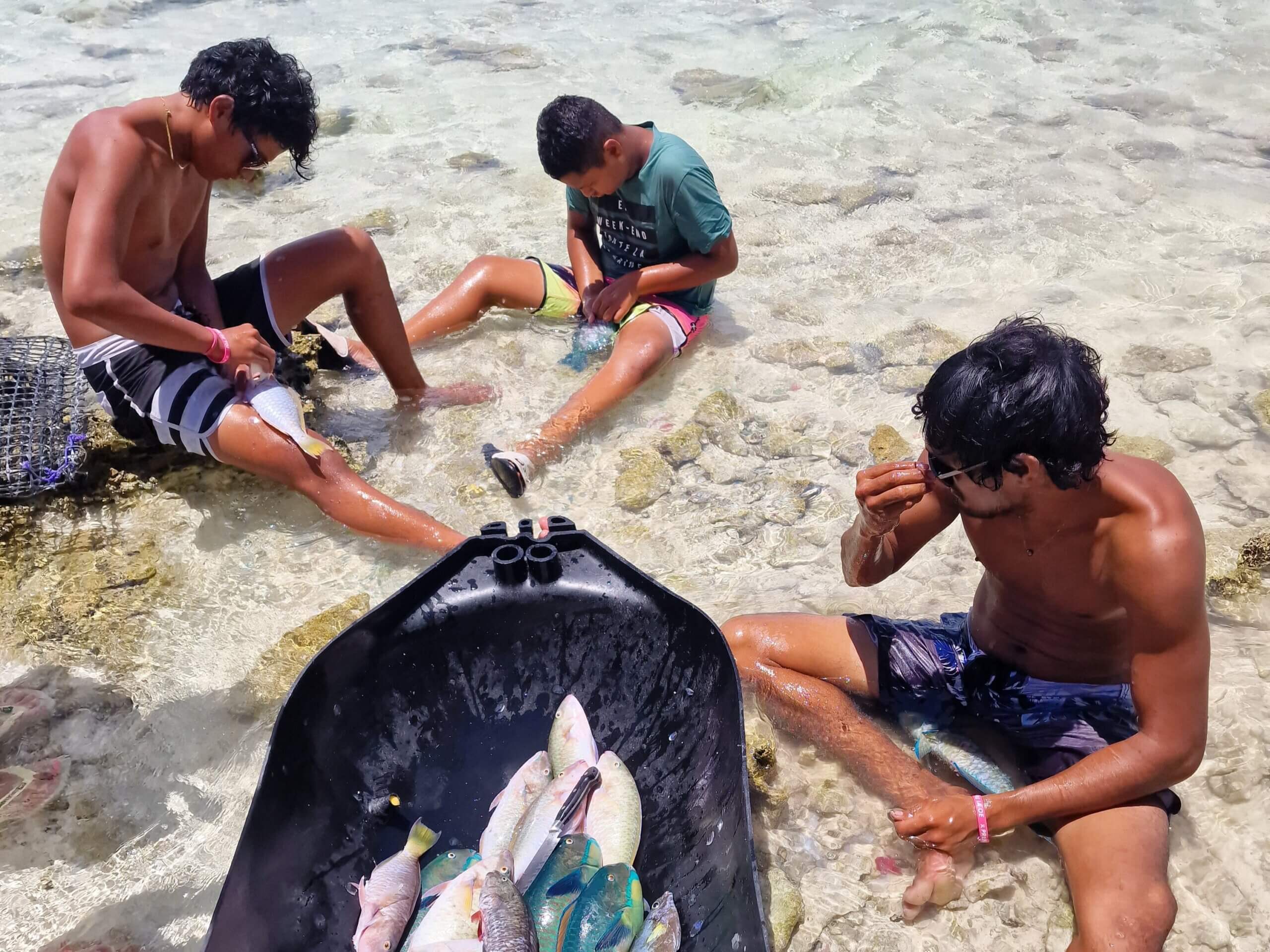
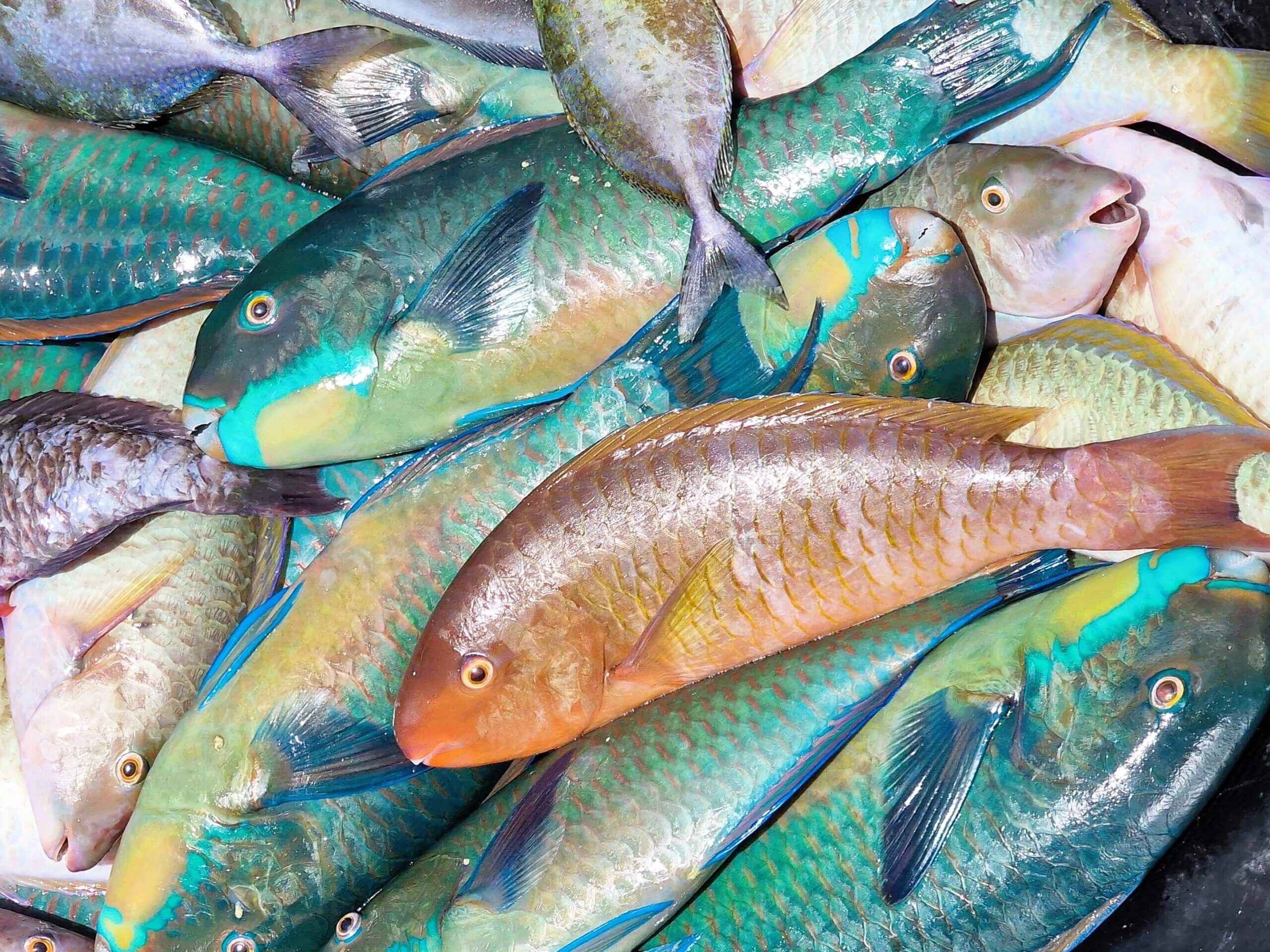
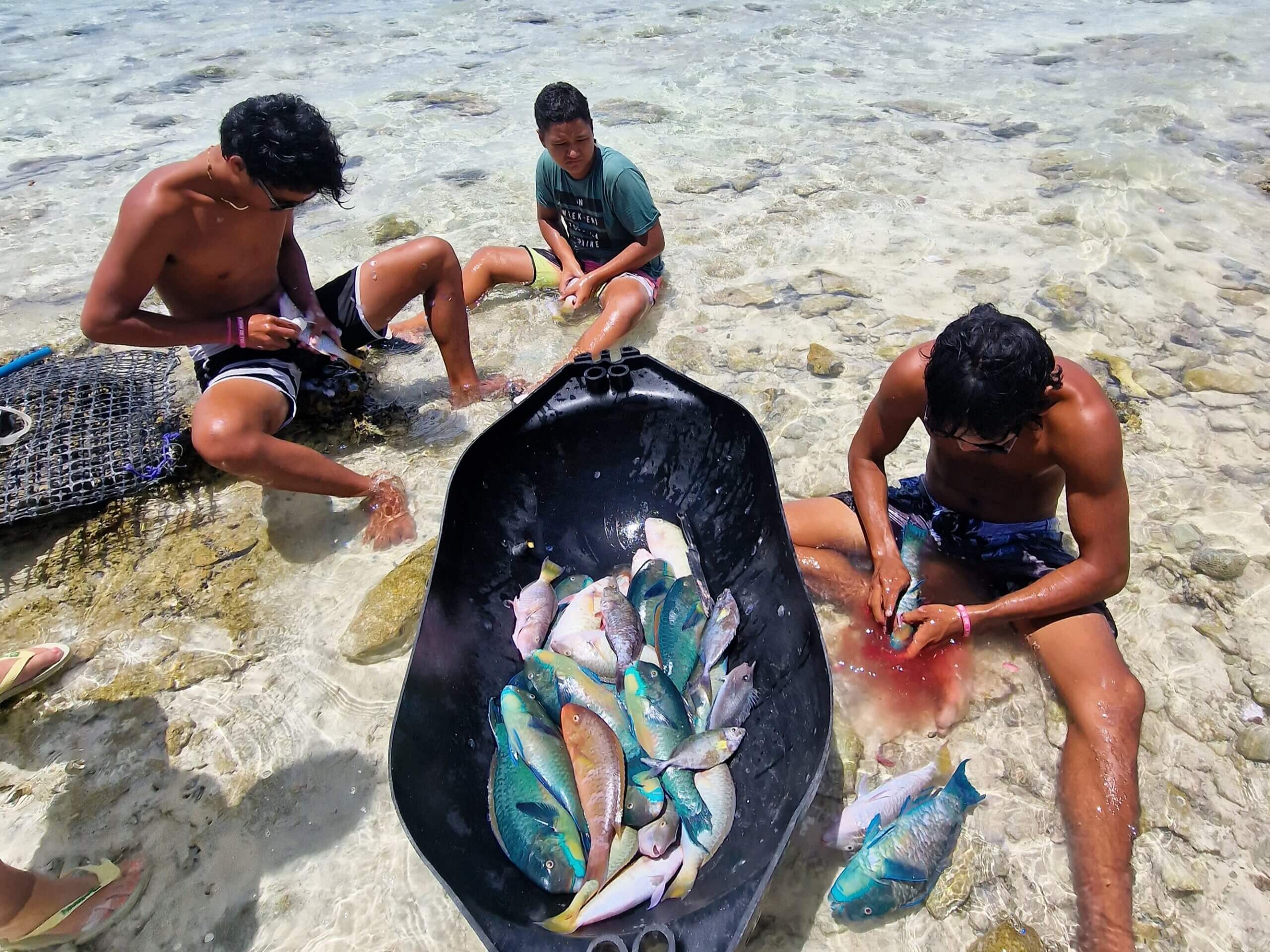
His hands move with the ease of long practice, peeling, cracking, drying—a rhythm born of necessity and survival. It’s funny to think how much of what these island people consume comes from their own labor. Need coconut milk? Crack one open in your backyard. Craving fish for dinner? Go catch one in the sea. It’s a far cry from the Western world, where half the stuff you consume, you have no clue where it even comes from.
Besides fish and coconuts, Rainui has another hustle every three weeks, helping offload the cargo ferry when it docks with provisions. He’s also the delivery guy for Makemo’s only pizzeria, which opens maybe once a week. “I win 2000 francs,” Rainui told me one day after schlepping 10 pizzas. That’s a measly 200 francs per delivery, roughly 1.8 dollars. My head’s spinning just thinking about it.
But hey, Rainui manages to scrape by, keeps his belly full, which is something. Don’t get me wrong, you can find happiness in these parts, but after hanging with this dude, I can’t help but want more for him. More than just a raggedy shack and a plastic bag of clothes. And Rainui? He’s got dreams, man. Aspirations. But how do you chase ’em when you’re just trying to make it through the day?
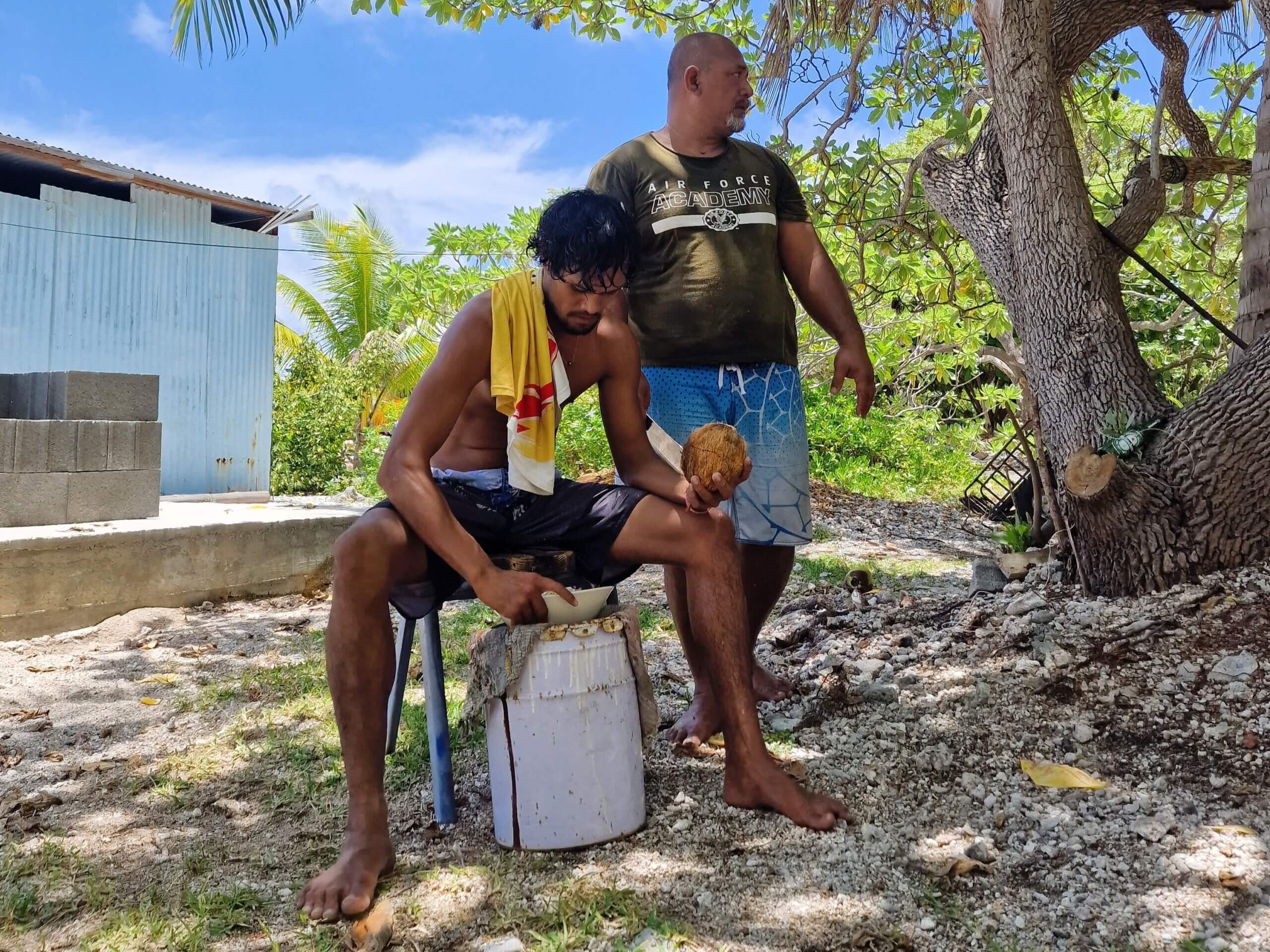
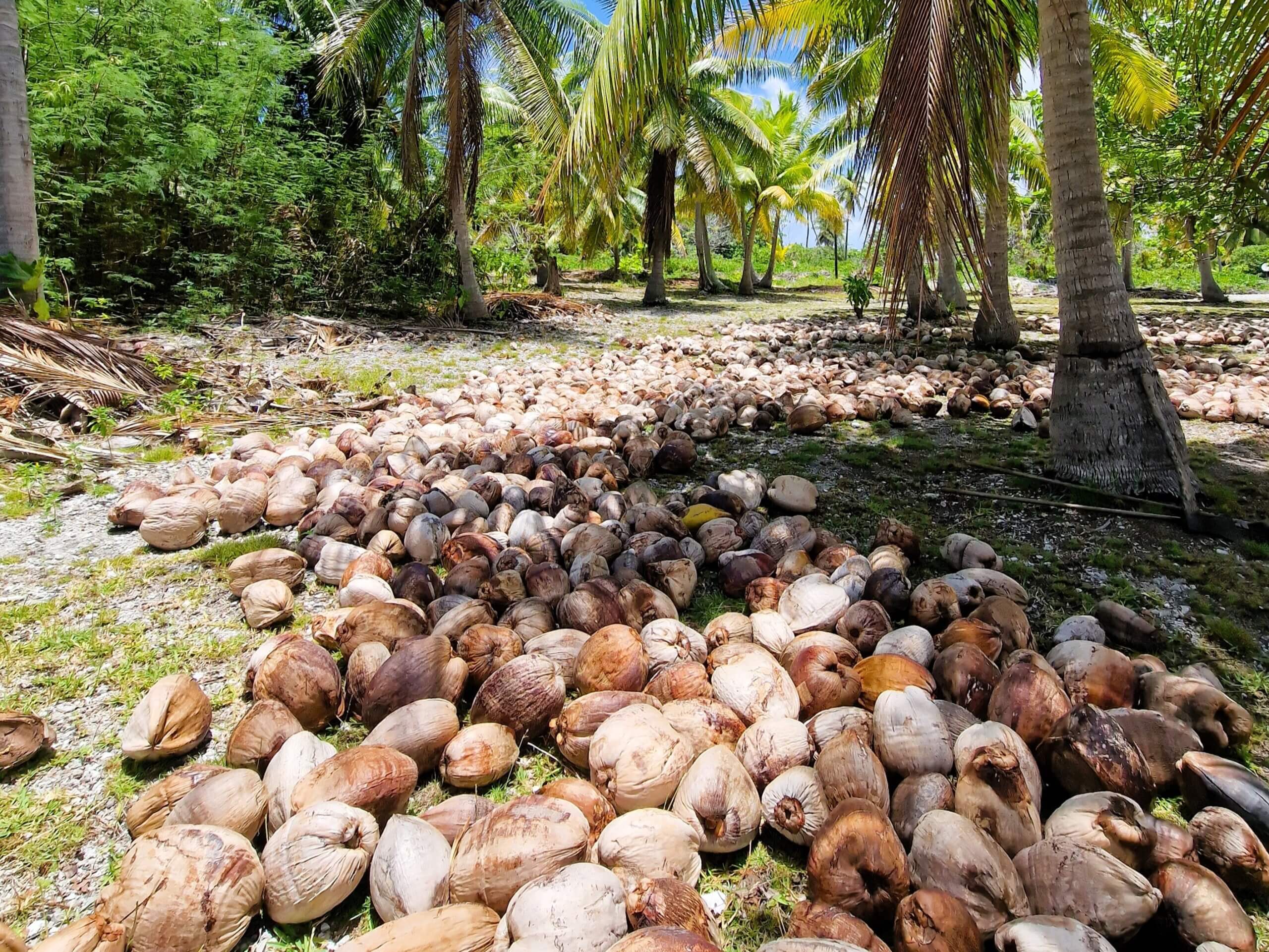
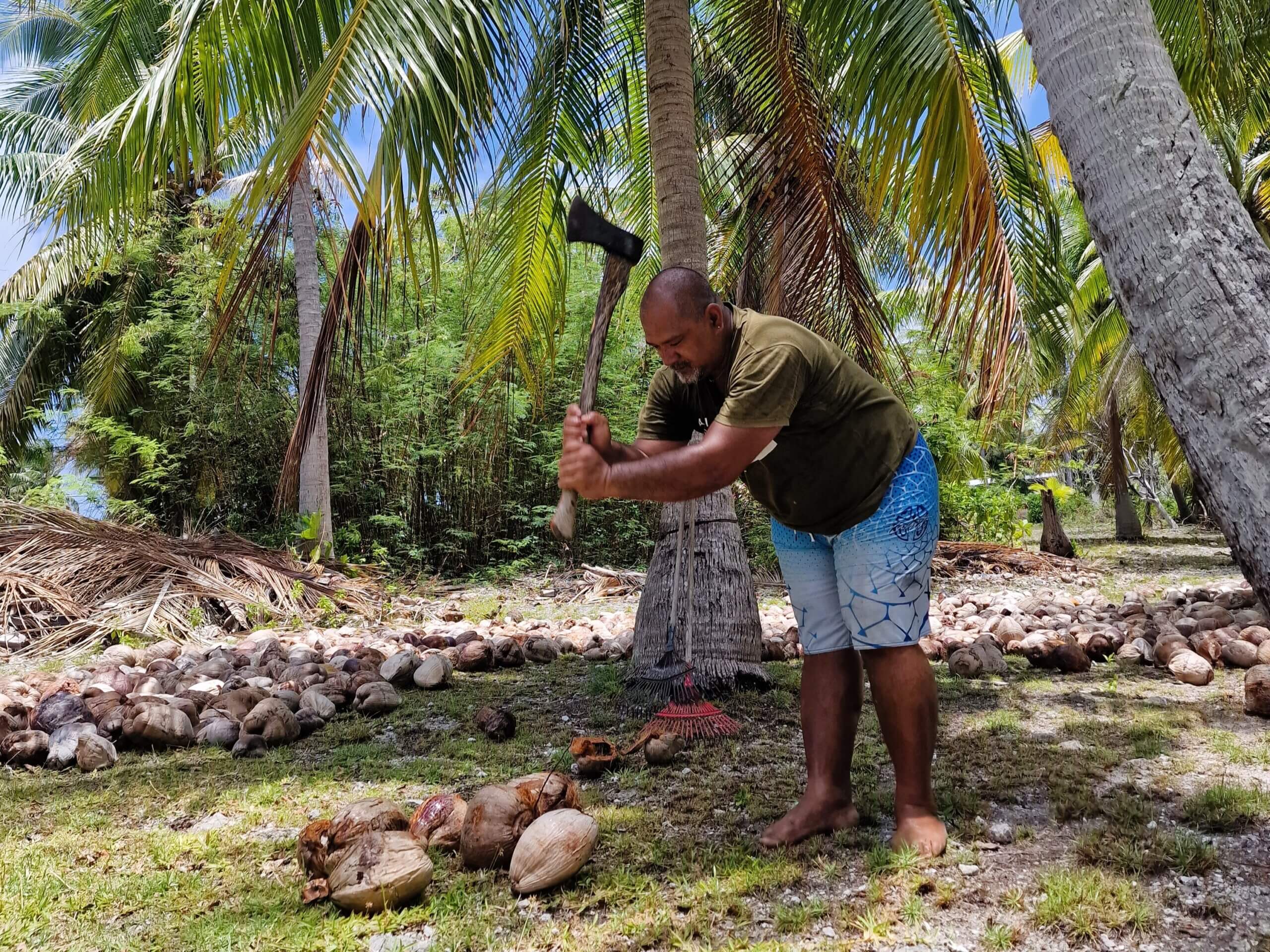
As I prepare to bid my farewells, struggling to carry the gifts I’ve received today—freshly caught fish, ready for the grill, freshly cracked coconut, and a one-liter bottle of Uncle Dave’s finest home-brewed beer—I can’t help but ponder if what’s really plaguing me is a case of the white savior complex. If these wonderful people want to offer me these gifts and refuse to accept anything in return, why do I find it so challenging to embrace them? Am I the one who’s messed up, wishing I could be of help to them? What if they’re perfectly content? To ease my conflicted feelings, I do the one thing I can on my way home: I purchase fishing gear and beers as gifts for Rainui and the squad.
Young, Wild and Free
That evening, under the star-studded sky on Makemo’s dock, we’re celebrating. It’s a celebration of the curious friendship between Rainui and me, and all the crazy adventures it’s sparked—not just for me, but for the whole crew. We’re toasting the folks of Makemo, who embraced us with open arms when we limped in with a busted rudder, feeling utterly defeated. It’s a celebration of diversity, of forging connections in unlikely places, and just the sheer joy of dancing under the stars.
The people here tonight are a vibrant mix of locals — Uncle Dave and his missus, Rolande and her man, Rainui, Tapu, David, and a handful of other local buddies along with my entourage of twenty thirsty Danes. We jump-start the festivities with a round of a Danish drinking game, the clatter of bottles mingling with the rhythm of the waves. Cheers and laughter fills the air as teams battle it out, and though our tongues may not dance in the same dialect, we all converse fluently in the universal language of laughter.
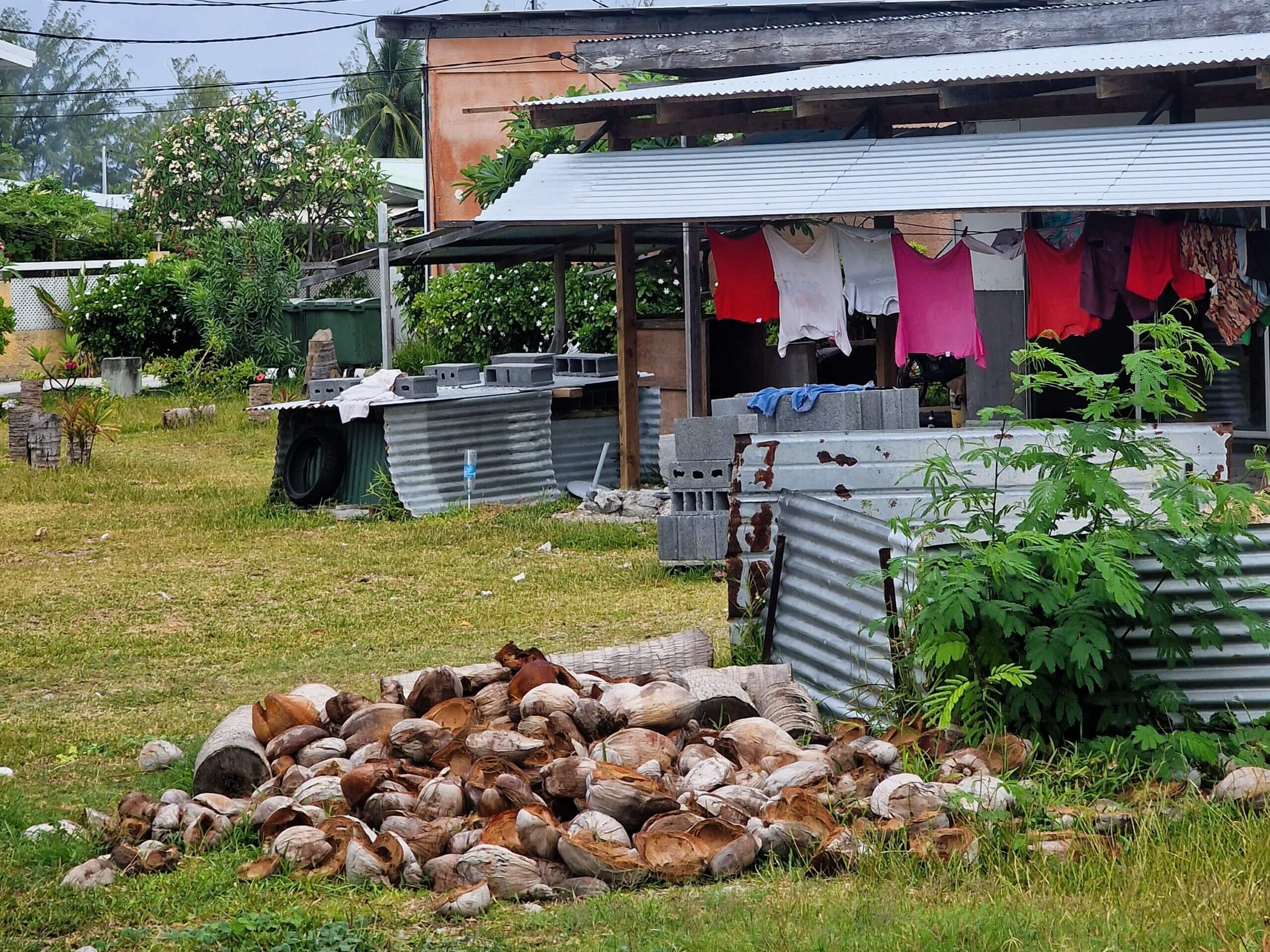
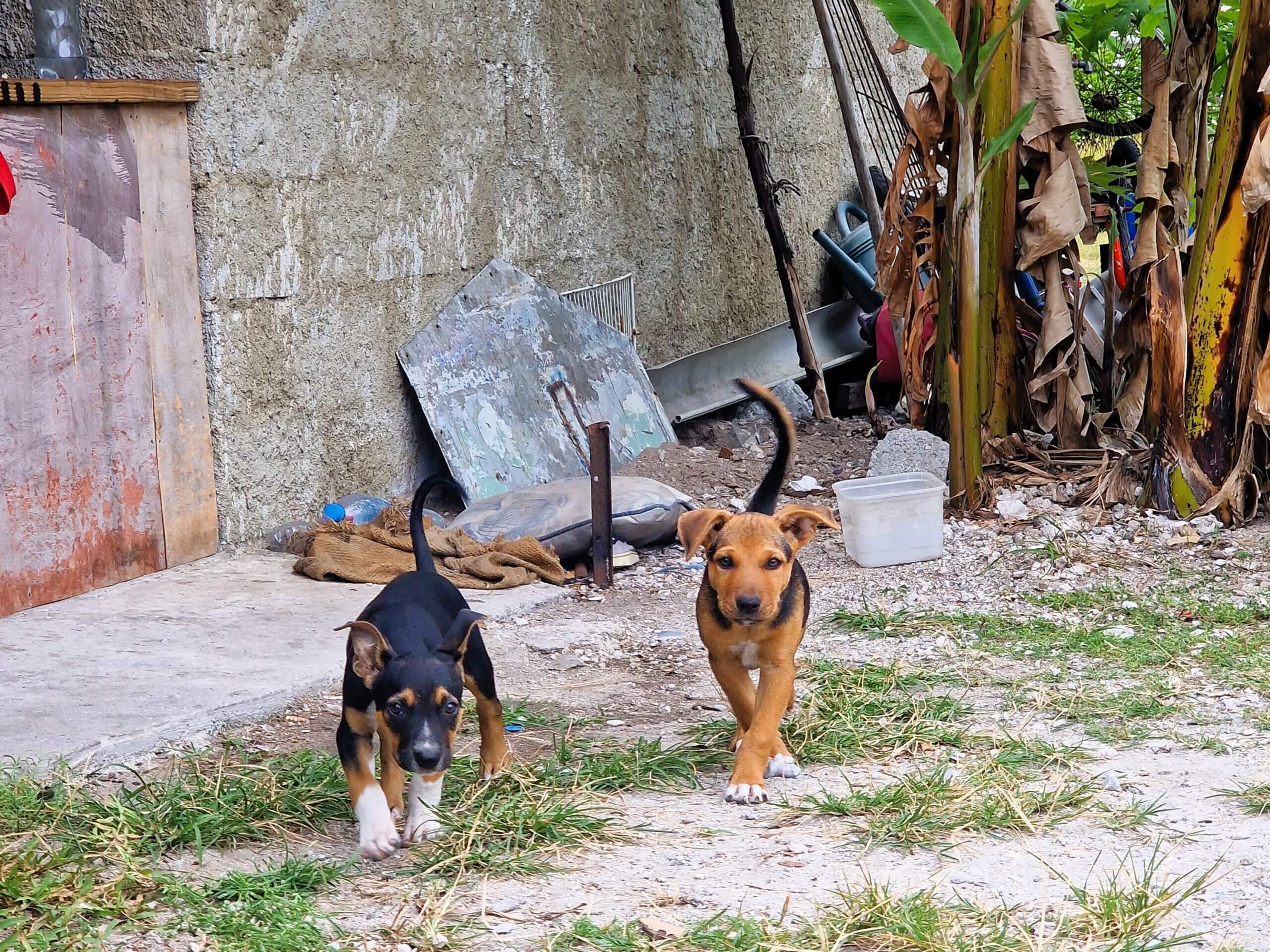
“Sara! Drink!” Uncle Dave’s voice cuts through the night, urging me into the heart of the party. Accepting a potent mix of rum and, you guessed it, fresh coconut water, I hand over the gifts I brought. “Here,” I say, offering a six-pack, fishing line, and hooks. “Mauruuru!” The echoes of gratitude fill the air, stark against the backdrop of the inky sky.
Settling into a plastic chair, I indulge in my 90-percent-rum drink, the cool ocean breeze tugging at my gray hoodie. I look to the dance floor and spot Rainui serving some sick moves to some hectic Tahitian beats (I’m clueless how to describe this genre, but trust me, it’s something—give it a listen below). The joy he radiates is unmatched. No struggles exist tonight. He’s spinning and grinning, living in the moment. And it feels good to witness. Joining him on the floor, I let the rum course through my veins and let my flying limbs take over.
“Sara,” Rainui’s eyes pierce through mine. “You’re the first person who hasn’t treated me with indifference,” he says, pausing for what seems like an eternity. “The first person who hasn’t treated me like I’m poor.” I feel like an elephant just kicked me in the stomach, leaving me out of air. The night seems to grow darker around us as I search for something to say.
“Rainui,” I begin, but my words falter, refusing to cooperate. “You’re freezing,” I manage to say finally, noticing his body quivering. With a sense of urgency, I remove my gray hoodie. “Here,” I offer, extending it to him. Rainui accepts it with a grateful smile. “I’m going to bed, I’ll see you tomorrow, okay?” I offer a smile before boarding the boat. Through a watery lens, I watch him return to the party. I’ve always wondered if I touch the people who have made such a big impact on me during my travels, even in the slightest. I guess I just got my answer.
That night, I receive a text from Rainui. “Thank you for existing,” it reads.
The Last Goodbye
On a rainy day, David, Rainui, and I are huddled beneath an overhang in the backyard of David’s granddad, smoking weed. Rainui is sporting velour pants and my gray hoodie, the one I insisted he keep. My time in Makemo is coming to an end. The insurance has finished processing our rudder accident, and we’ve been ordered back to Tahiti, the only place in Polynesia that can handle the fix. The weather mirrors my mood, the impending departure hanging heavy in the air between us.
“(…)they chased me for 6 kilometers, and I was barefoot on the scorching pavement!” Rainui recalls, weaving a tale from his rough days on the streets of Papeete. As he lifts the joint to take a puff, I notice the little gap on the right side of his mouth where a tooth used to be—a souvenir from a fight. Back then, Rainui used to smoke crack, known locally as ice. “That’s no good for you,” he tells me now, having traded one vice for a less destructive habit. These days, he sticks to weed, sharing joints with friends every now and then.
I look at my two new companions as the smoke curls and dances, then slowly fades into the air around us. Dear reader, have you ever lived through a moment, right here and now, when it dawned upon you just how much you’re going to miss it? Well, that’s precisely what’s happening to me. “Guys,” I utter, inhaling deeply. “Thank you,” I press on, “Thank you for welcoming me into your lives and allowing me to share in your experiences. It’s been nothing short of extraordinary, and I’ll forever cherish every memory.”
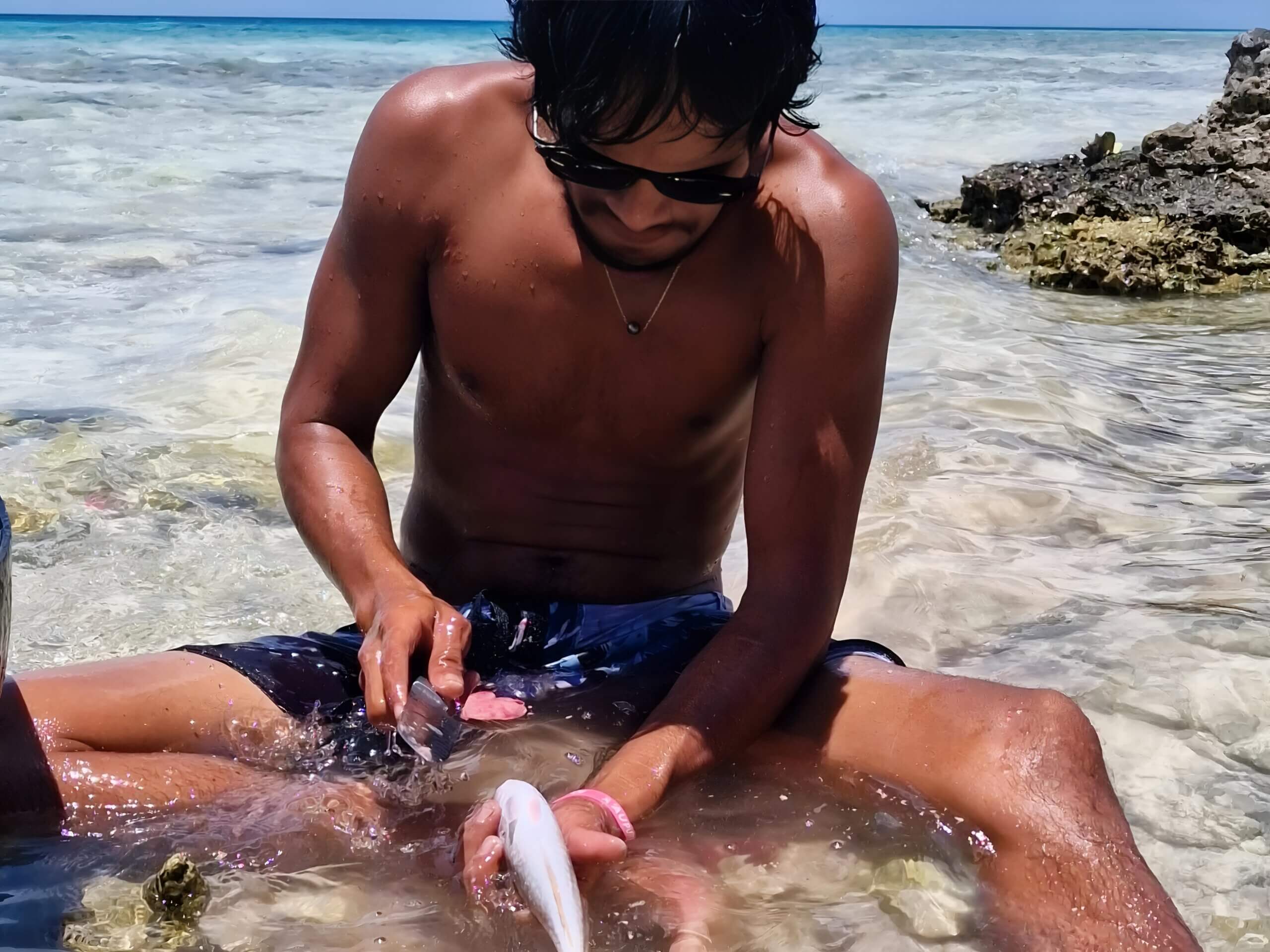
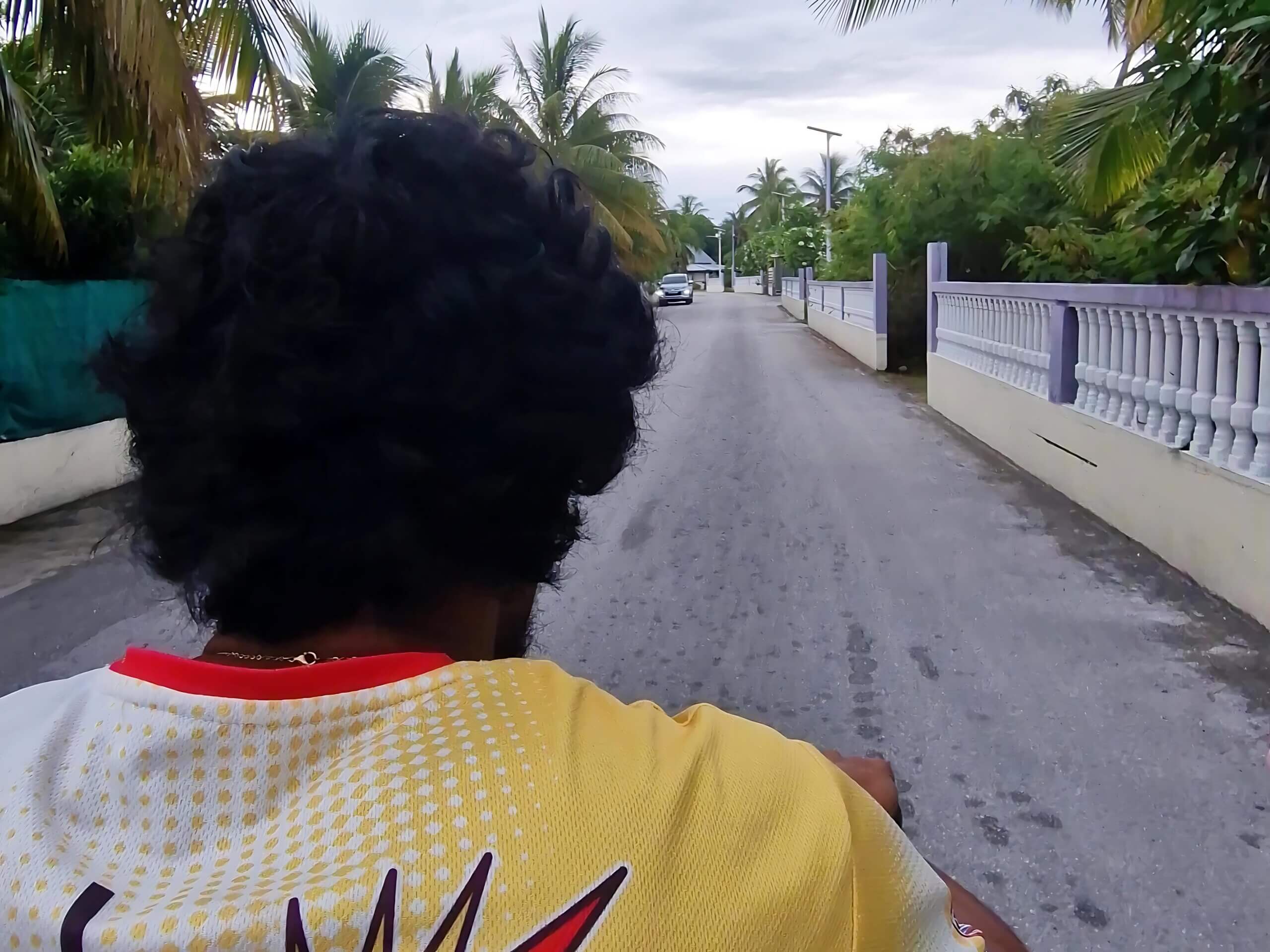
Walking through town one last time, barefoot as always, I’m soaking in every drop of this rainy afternoon’s fleeting magic. The locals waving at me from their cozy homes. The playful puppies tumbling around in the street. The go-to grocery shop with the big, blue “Hinano” beer logo beckoning you inside. The fragrant medley of hibiscus, tiare, and gardenia, swirling around the streets. And then, there’s the white church on the corner, guiding my path towards the dock. I can almost hear the loyal fishers, poised to reel in their next catch, whether it’s a mighty trophy or a modest Napoleon.
As the rain taps lightly on our heads, Rainui and I share a silent moment on the dock. It’s that bittersweet time, the inevitable goodbye. “I’m smiling,” Rainui admits, “But I am sad.” I nod. “Me too.” I hug him. Just like I did on that first night. But this time, he doesn’t jump. He tightens his grip around me for a second and then releases. We exchange a look, one that I believe is saying, “Thank you. For everything.” With a final hug, I run back to the boat, freeing the lines and jumping on-board with a heart that now feels like a brick in my chest.
As I watch Makemo fade into the distance, obscured by the falling rain, I realize something profound. I’ll never quite be whole again because part of me will forever remain in the places I travel to, safely kept by the people I connect with.
And just like that, a piece of my heart sunk to the bottom of the Pacific. Legends have it, it’s still there today.
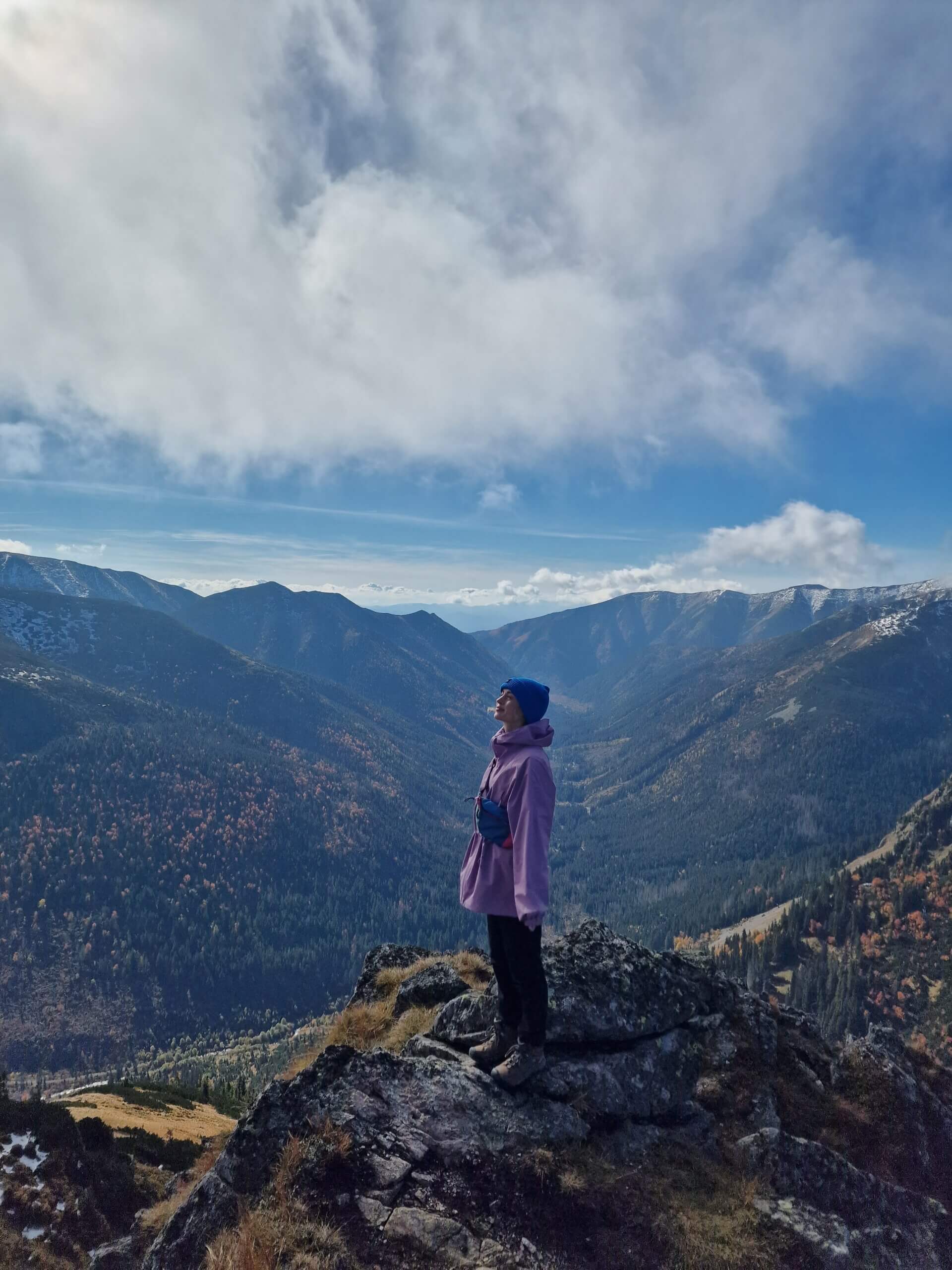
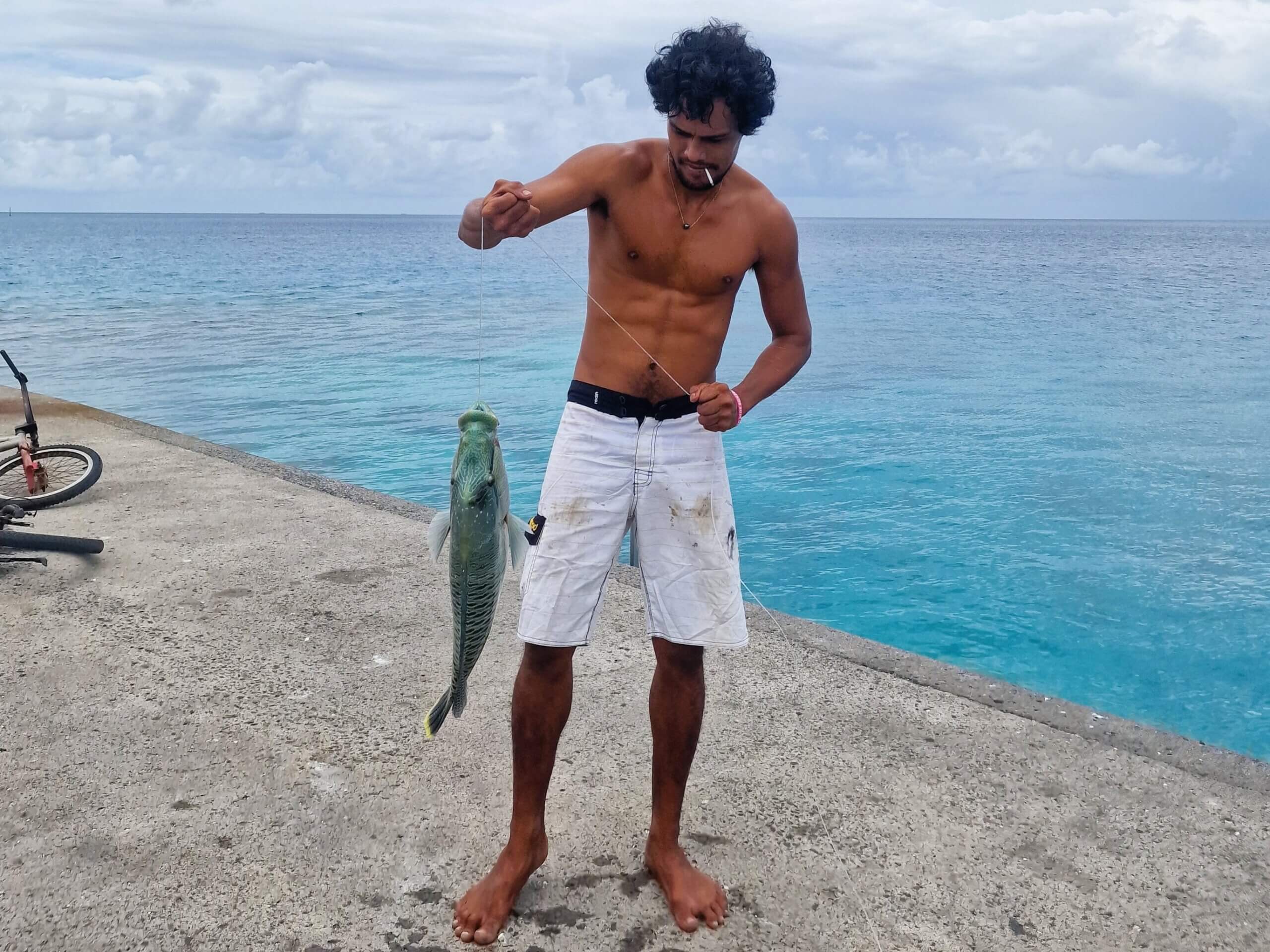
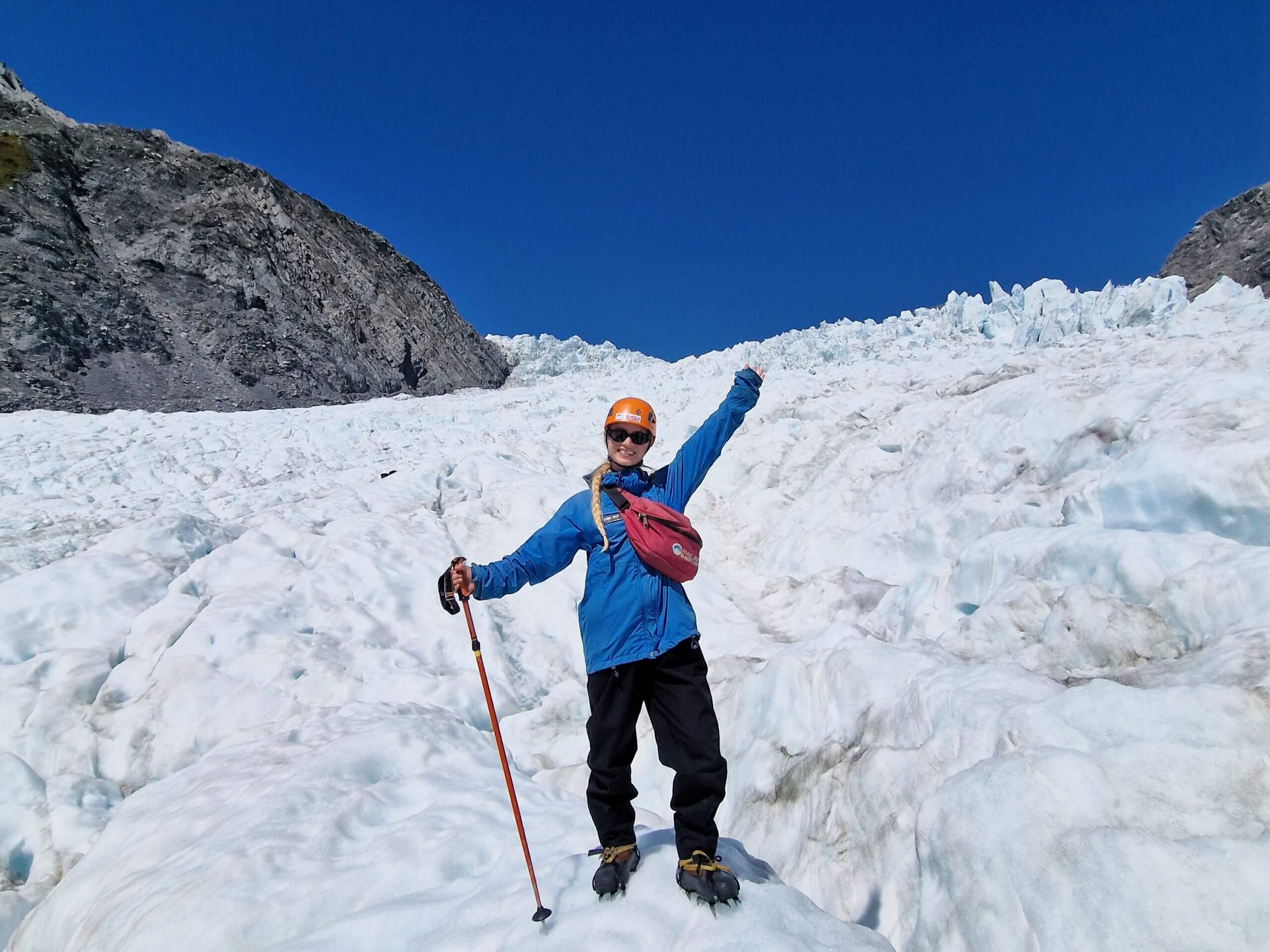
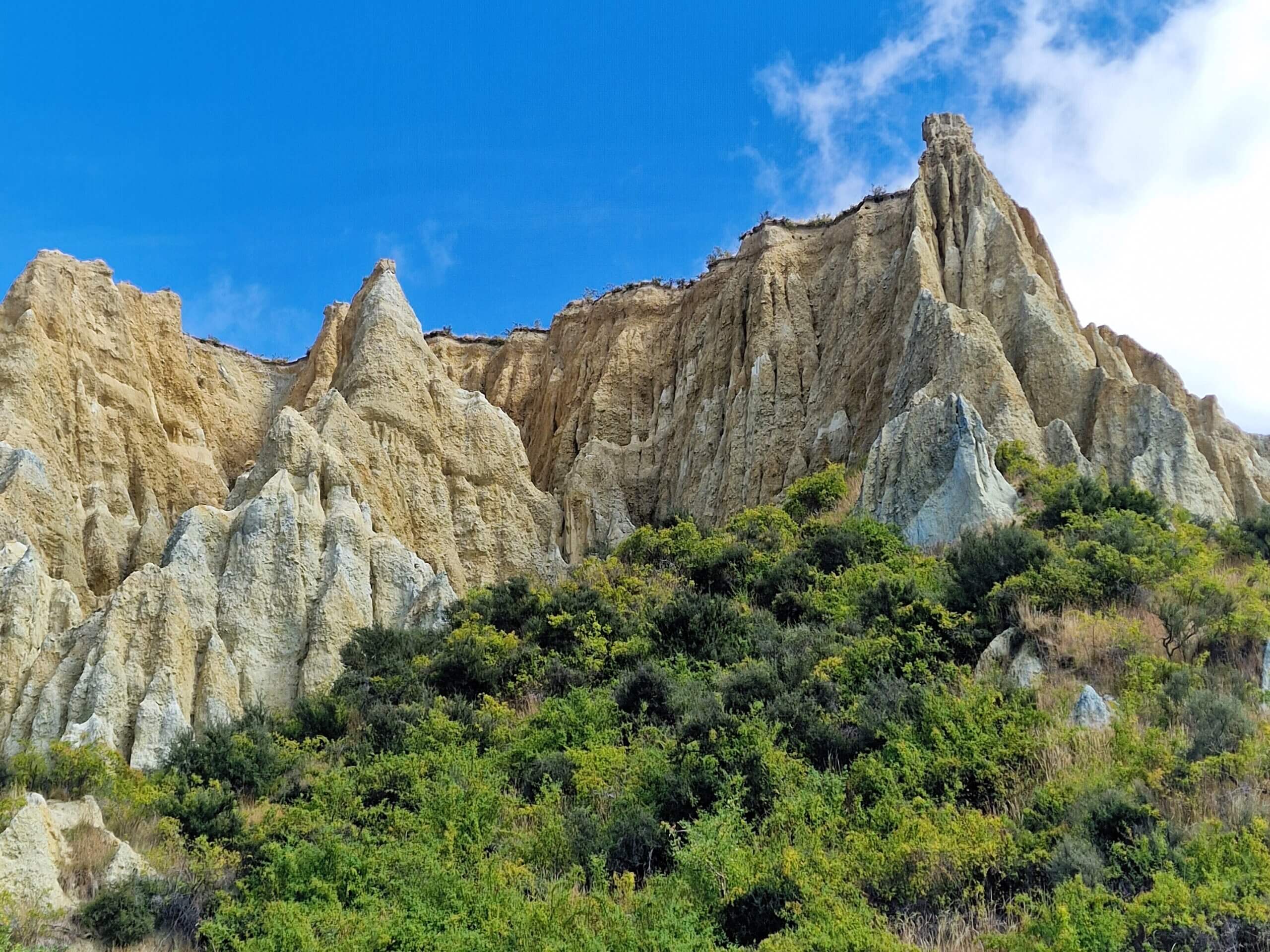
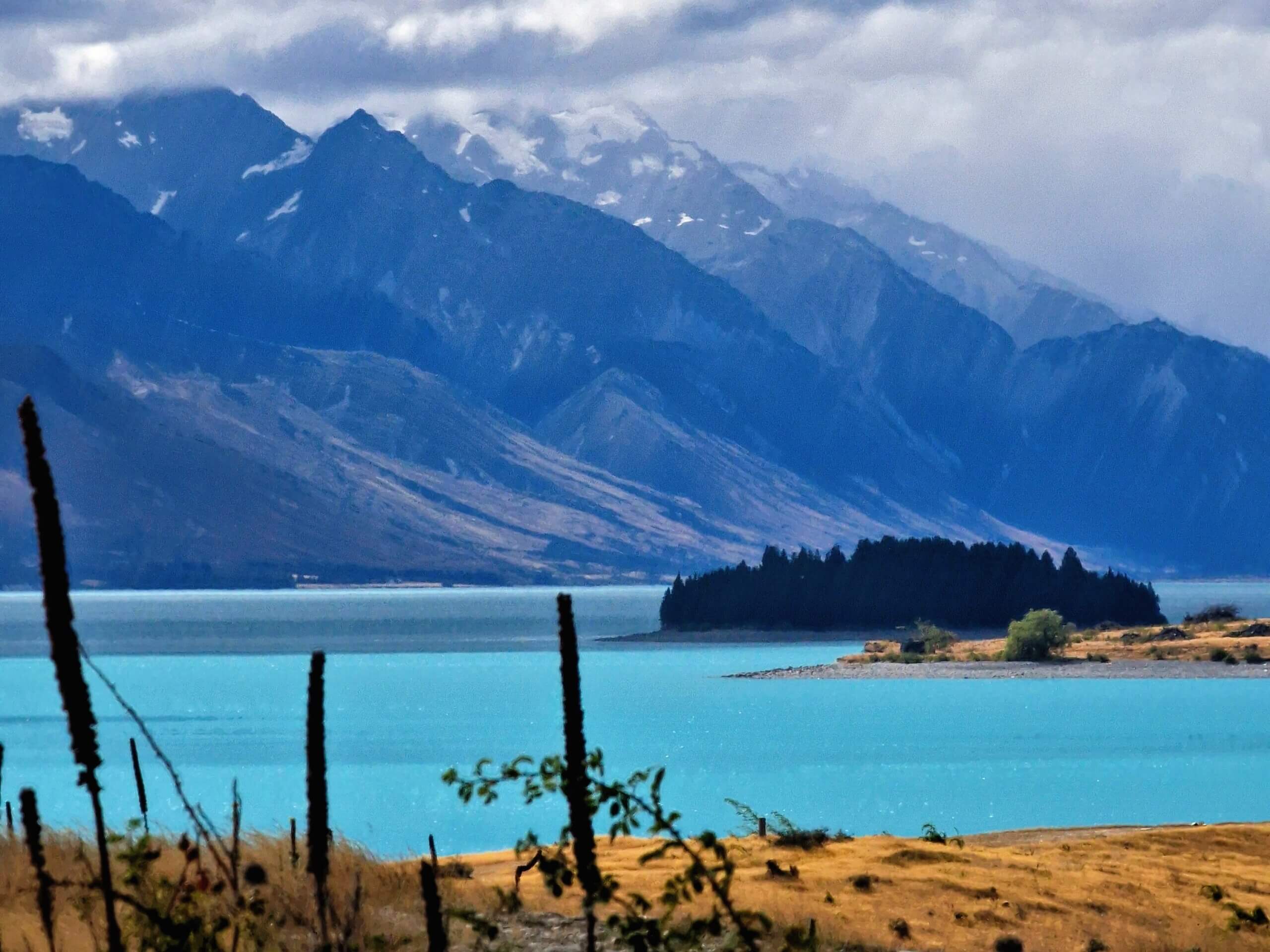
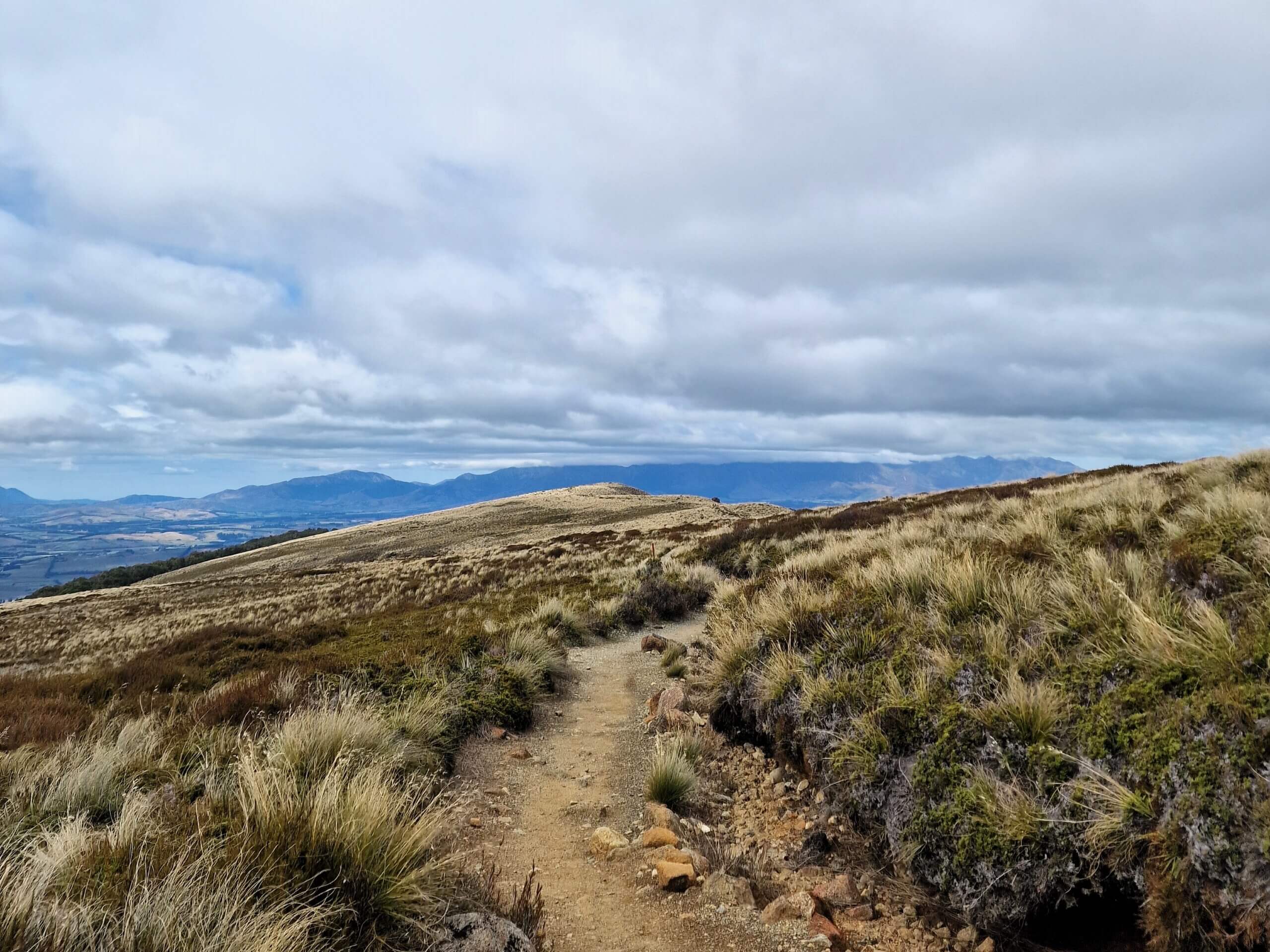
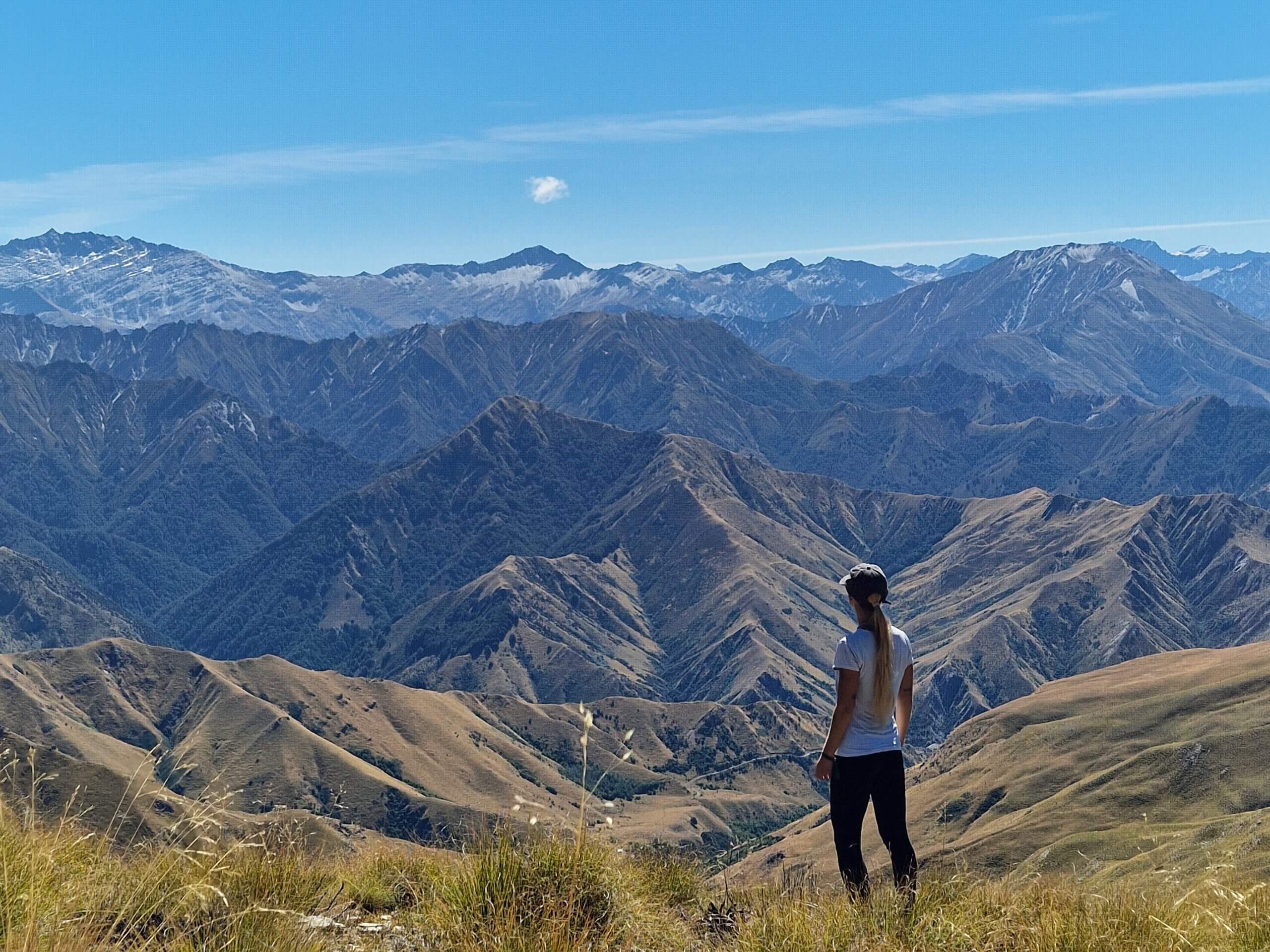
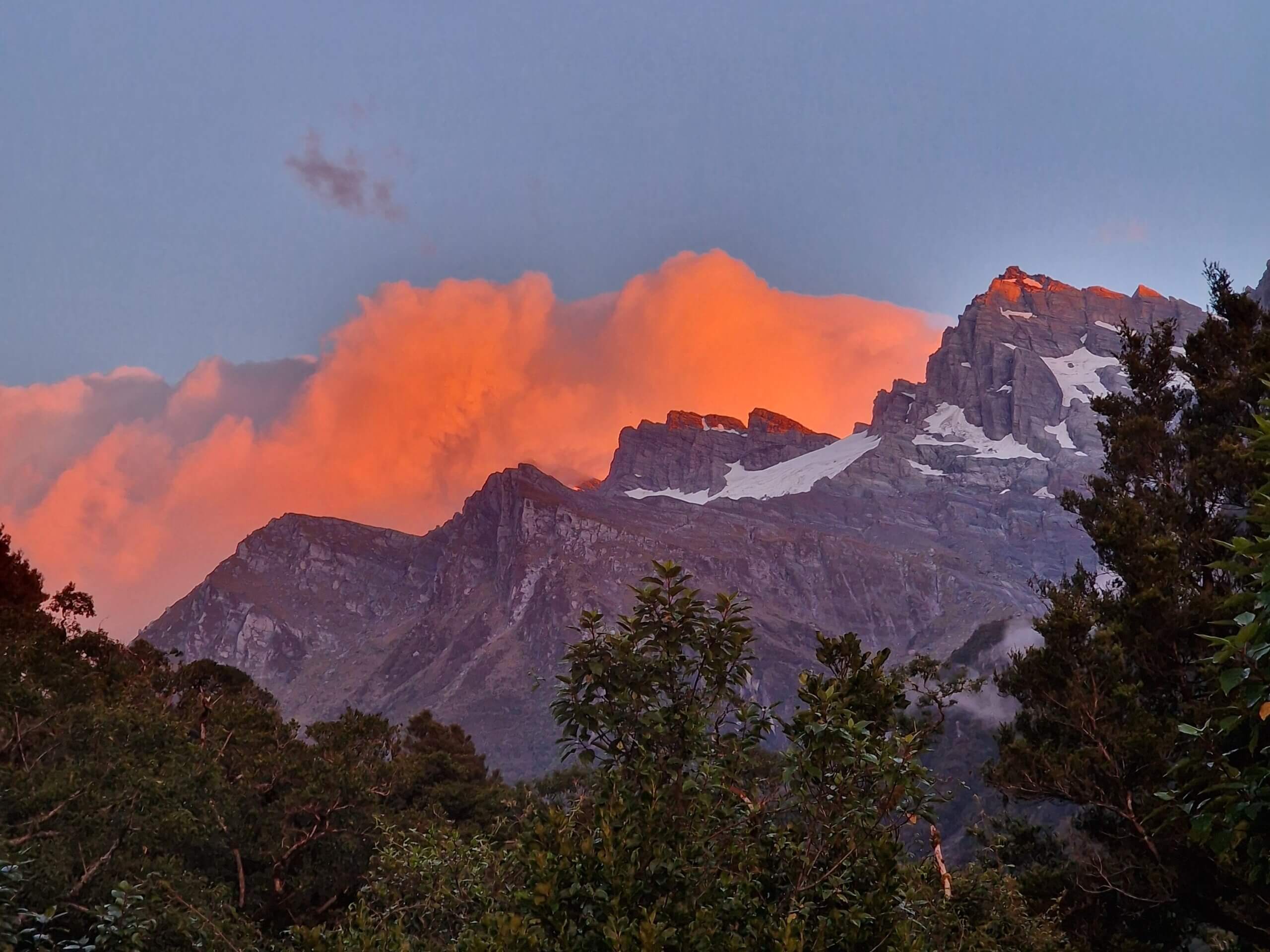
Leave a Reply